








Music is what drives you. It’s what gets you up in the morning and keeps you going. Maybe, you’re a little obsessed with making great-sounding beats or putting on shows that blow people’s minds. Whatever, music is what makes you happy, and you are determined to make it your career. Sound like you? Then, The Blackbird Academy is exactly where you need to be.
Our intensive six-month programs are designed to give you everything you need to crush it in Studio Engineering or Live Sound. When you’re done, you won’t just be ready—you’ll be unstoppable!

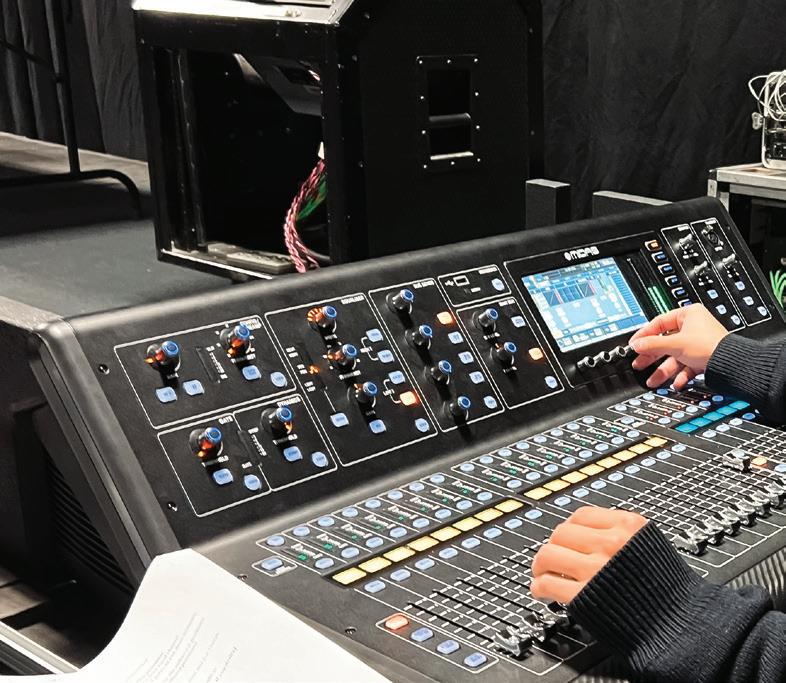
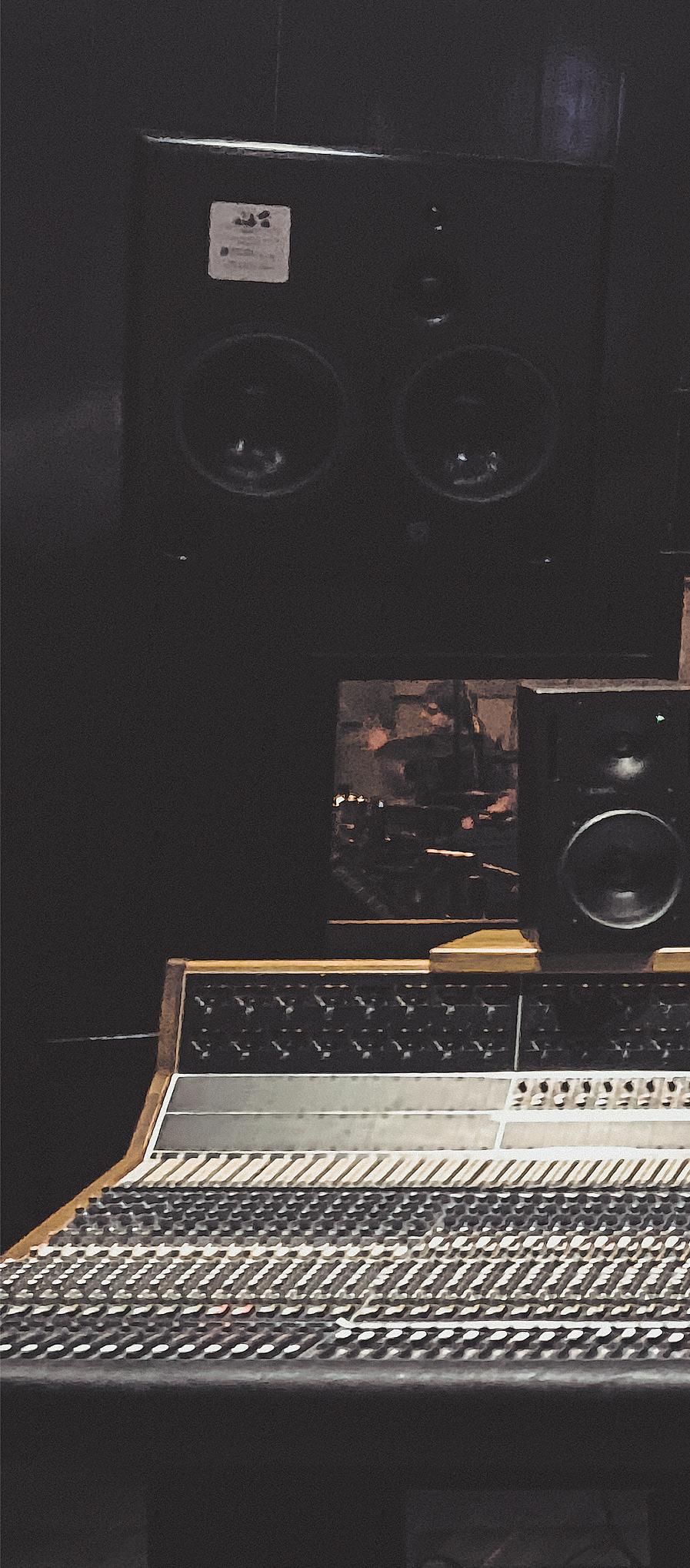
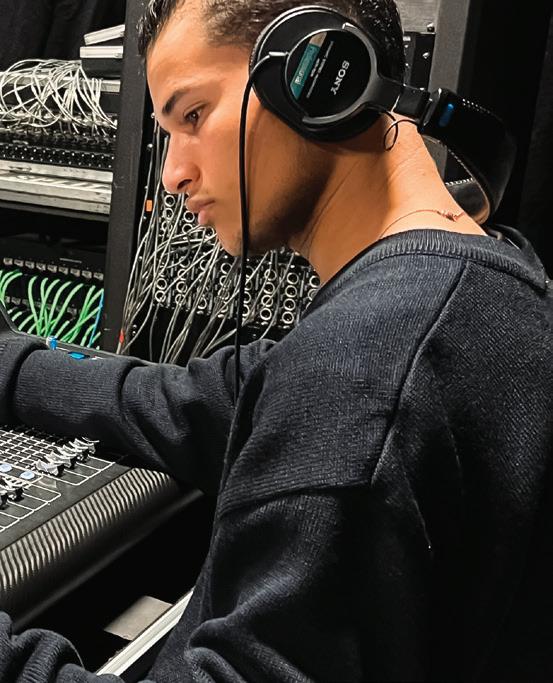


Your passion for music has brought you to The Blackbird Academy—a school whose sole mission is to teach you one thing—how to create exceptional, mind-blowing audio. As you flip through this catalog, you’ll dive into the Blackbird story and discover why our unique teaching approach is unlike anything else out there. Once you’ve checked it out, don’t hesitate to call or email us with any questions—or to reserve your spot in an upcoming class!

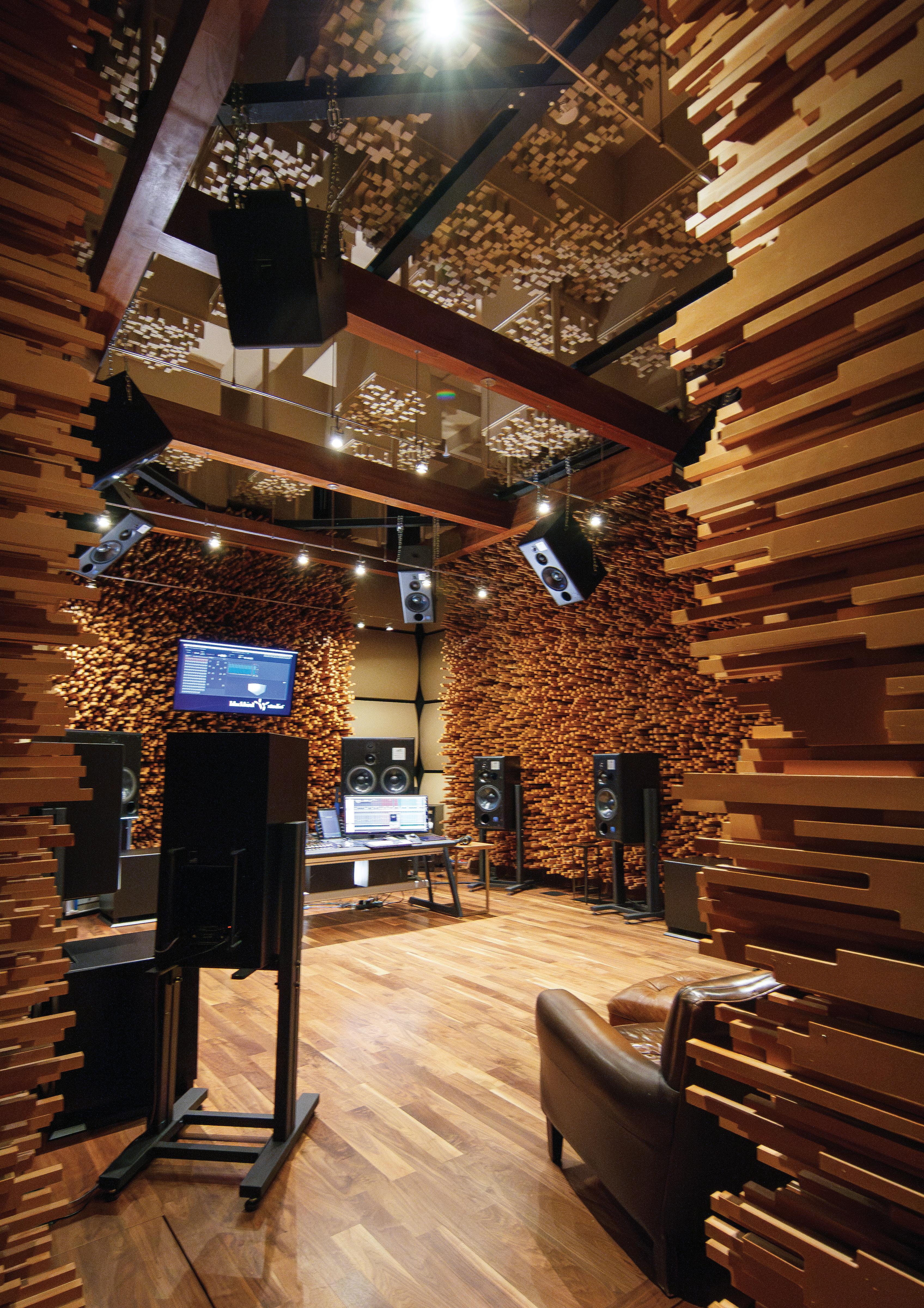
The music side not only includes the writing and arranging of songs, but also the engineering, recording, and mixing. The Blackbird Academy can give any individual a great kick start in learning about and preparing for a career in these disciplines.
The Blackbird Academy’s immersive approach gives students a natural fusion of new recording technology and the eternal recording techniques used over the last 50+ years. This approach lays a solid foundation from which to springboard your own natural talents.
For aspiring engineers, producers, and artists, The Blackbird Academy offers more than just education—it’s an exciting, lifechanging experience. If I were starting my journey again, this is exactly where you’d find me – at a great place to learn and to keep one’s creativity intact.
And with Blackbird Studio, the world’s finest recording studio, as its home, there is no better place to learn!
– Robert John “Mutt” Lange, Producer & Songwriter


“ ATTITUDE IS 99% OF THE GIG.
—John
McBride, Founder, President & Institutional Director
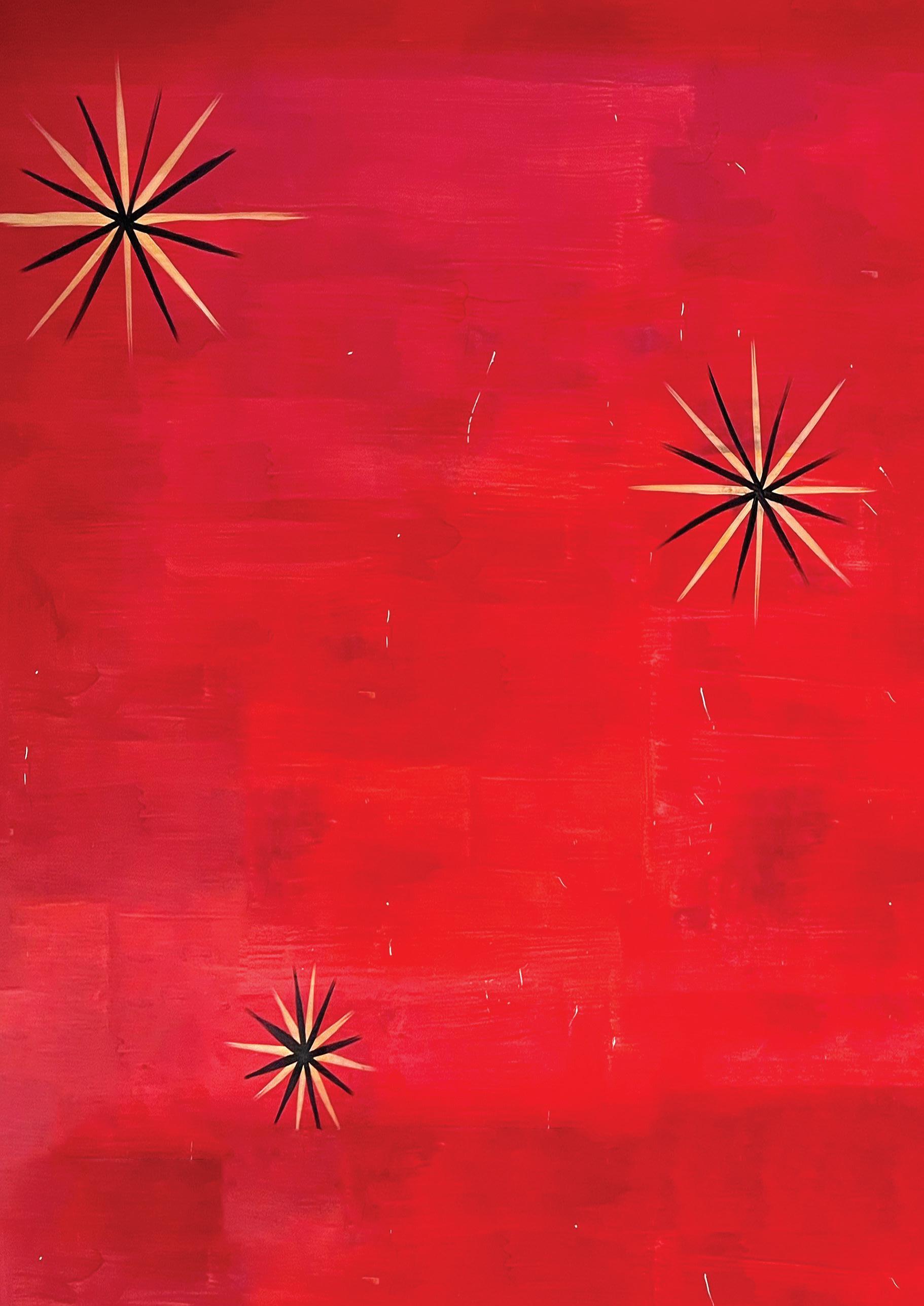
Anumber of years ago, I took a few steps back and took a long, hard look at my life. God and family are at the center of my life, as I’m sure they are for many people. After that, I am fortunate because I have been making a living in the music business for a long time, and frankly, any day I can make a living in the music business is a great day!
So, here I am with an incredible wife (Martina McBride), an incredible studio (Blackbird Studio), and a long list of friends who work in every area of the business. I have great friends at record labels, management companies, booking agencies, live production companies, studios, and publishing companies. So, how do I do something with my life that involves all of this and benefits the world, too?
The older I get, the more important mentoring has become for me. Teaching is an honorable and great occupation that is important to the future of our world. There is a bit of a teacher in my DNA as my dad taught for years and is now retired. This is where the idea of The Blackbird Academy originated. I have had teachers who made a huge difference in my life. I would love to have the
same positive effect on as many students’ lives as possible.
Thanks to the mentors who shared their knowledge and experience with me, I have been able to work on many projects in the recording studio in a very short time. Music by a variety of artists from Kesha to Dave Stewart to Martina has my stamp and my name on it – something of which I am very proud. I would like to provide those same mentoring opportunities to any student who signs up for The Blackbird Academy so they may master these skills in the same way that I learned.
We are passionate and driven in our goals to improve the music business and change the world, and we can do that by giving an outstanding education to our students.
If you have any questions, do not hesitate to contact us. We are here to make a difference. I believe students can figure out if this career is for them by taking this course. It will not take four years of your life, and you will not have huge debt to deal with upon graduation. If this is your chosen profession, let us get you on your way to making a great living right away!
Thanks, and I look forward to hearing from you!
LETS FACE IT. A FOUR YEAR COLLEGE ISN’T FOR EVERYONE.
The Blackbird Academy presents a transformative approach to audio education, addressing the common pitfalls that often hinder students in traditional four-year programs. While those graduates often struggle with limited skills, insufficient hands-on experience, and burdensome debt, The Blackbird Academy offers a solution designed to empower future audio professionals.
Our program provides students with unparalleled access to top industry professionals and a truly immersive, hands-on experience. Utilizing a world-class collection of gear in facilities dedicated solely to the art of making exceptional music, we prepare our students to excel in the competitive field of audio engineering.
The Blackbird Academy’s mentor-based program is led by an elite team of professional instructors and award-winning guest lecturers. Situated on the foundation of Blackbird Studio in Nashville – a hub for engineers, producers, musicians, and technical staff who have continually elevated the art of recording—the Academy offers a unique learning environment where the art and science of audio come to life.
Graduates of The Blackbird Academy emerge with a deep technical and theoretical understanding of their craft, positioning them for success in their careers. Join us at The Blackbird Academy to start your journey toward excellence in audio engineering.
1) We educate and challenge students through real-life scenarios that studio or live sound engineers would face on a regular basis.
2) We believe that learning should occur hands-on in professionally designed studios and labs, not in cold, sterile classrooms.
3) We aim to deliver the best education in the shortest amount of time at the most affordable cost.
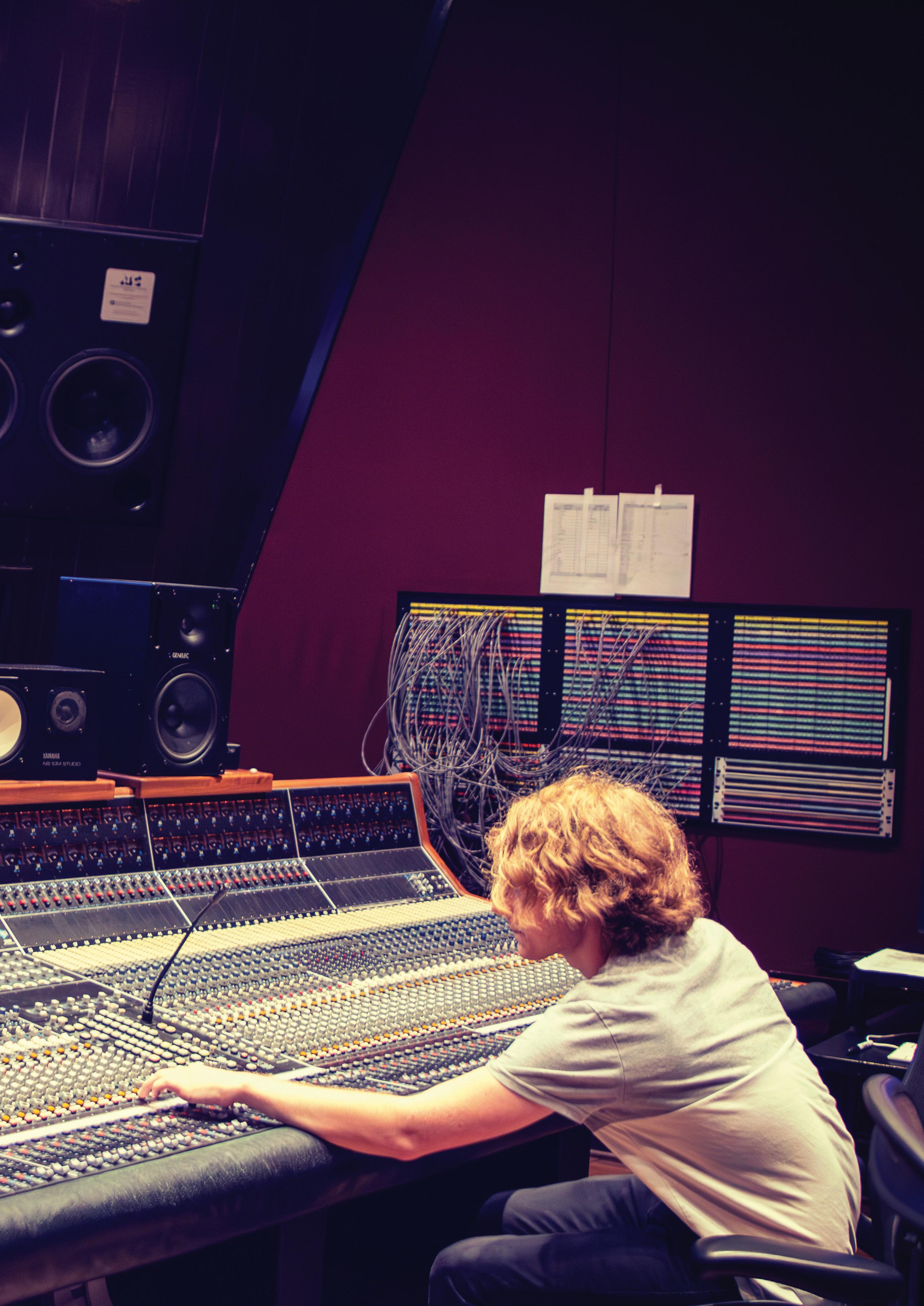
Our program gives students unparalleled access to top industry professionals and a truly hands-on experience using a world-class collection of gear – all in facilities designed for one purpose –MAKING EXCELLENT MUSIC.
The best way to learn? By doing. At The Blackbird Academy, our program is all about hands-on experience. You’ll learn firsthand from top professional engineer/instructors with serious credentials and lengthy credits.
Our curriculum is packed with round table talks and guest mentoring sessions with top-tier engineers and other industry
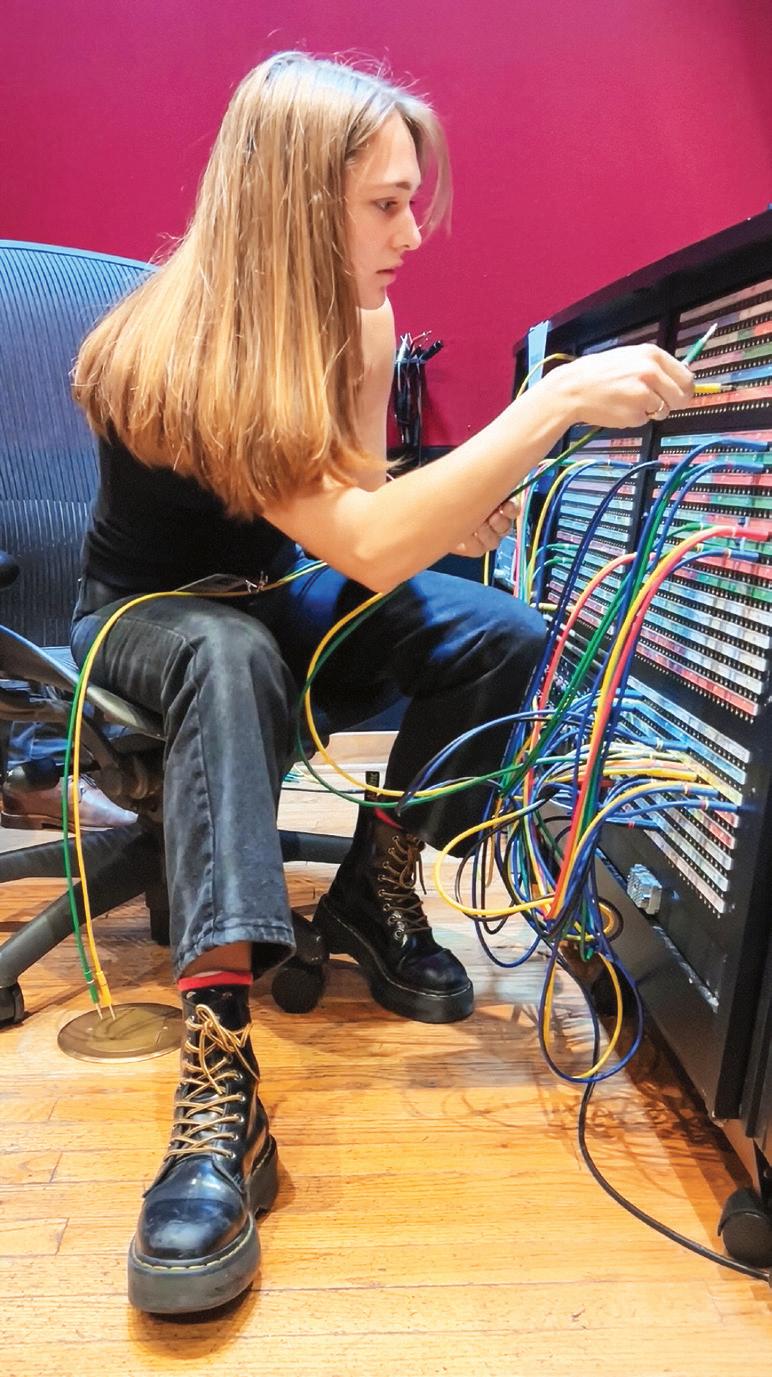
pros. You’ll face “hot-seat” and “ears-on” challenges that sharpen your ability to listen and react like a pro. Plus, with small class sizes, you’ll get the personal attention you need to level up fast. When you’re not in the classroom or studio, you’ll be on-site at studios, live venues, or music production businesses, learning in real-world environments where the action happens.
See what you’ll learn, page 22.
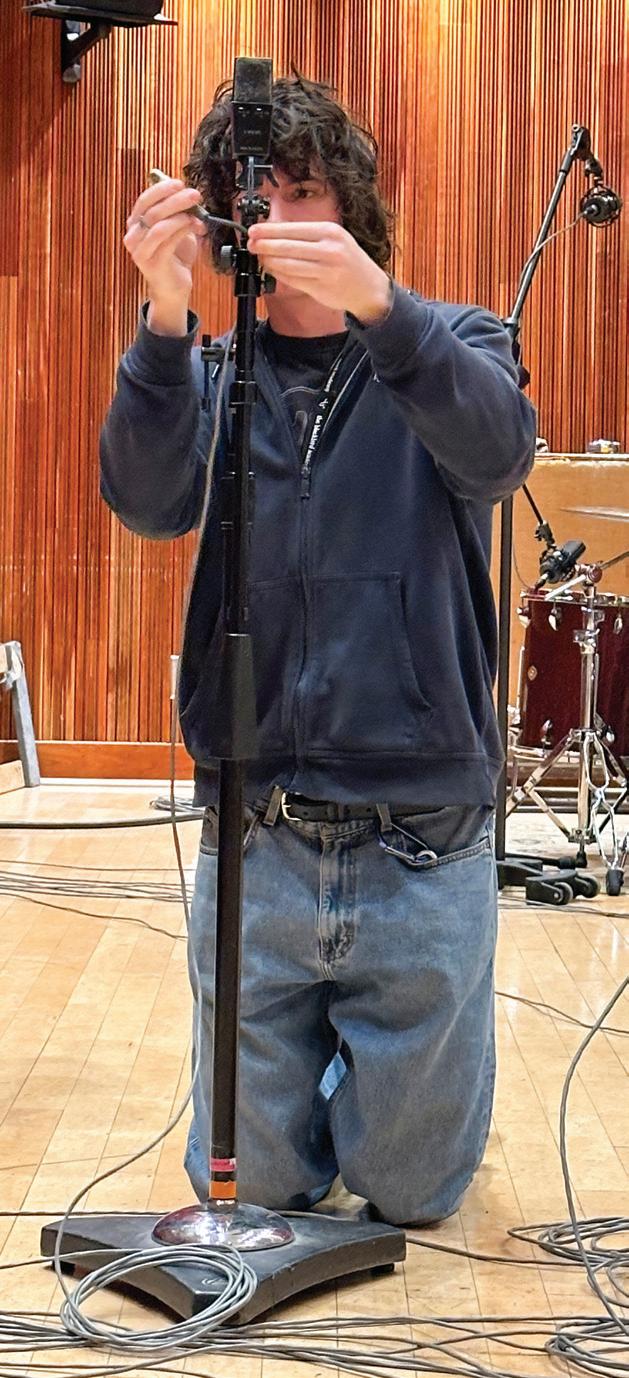
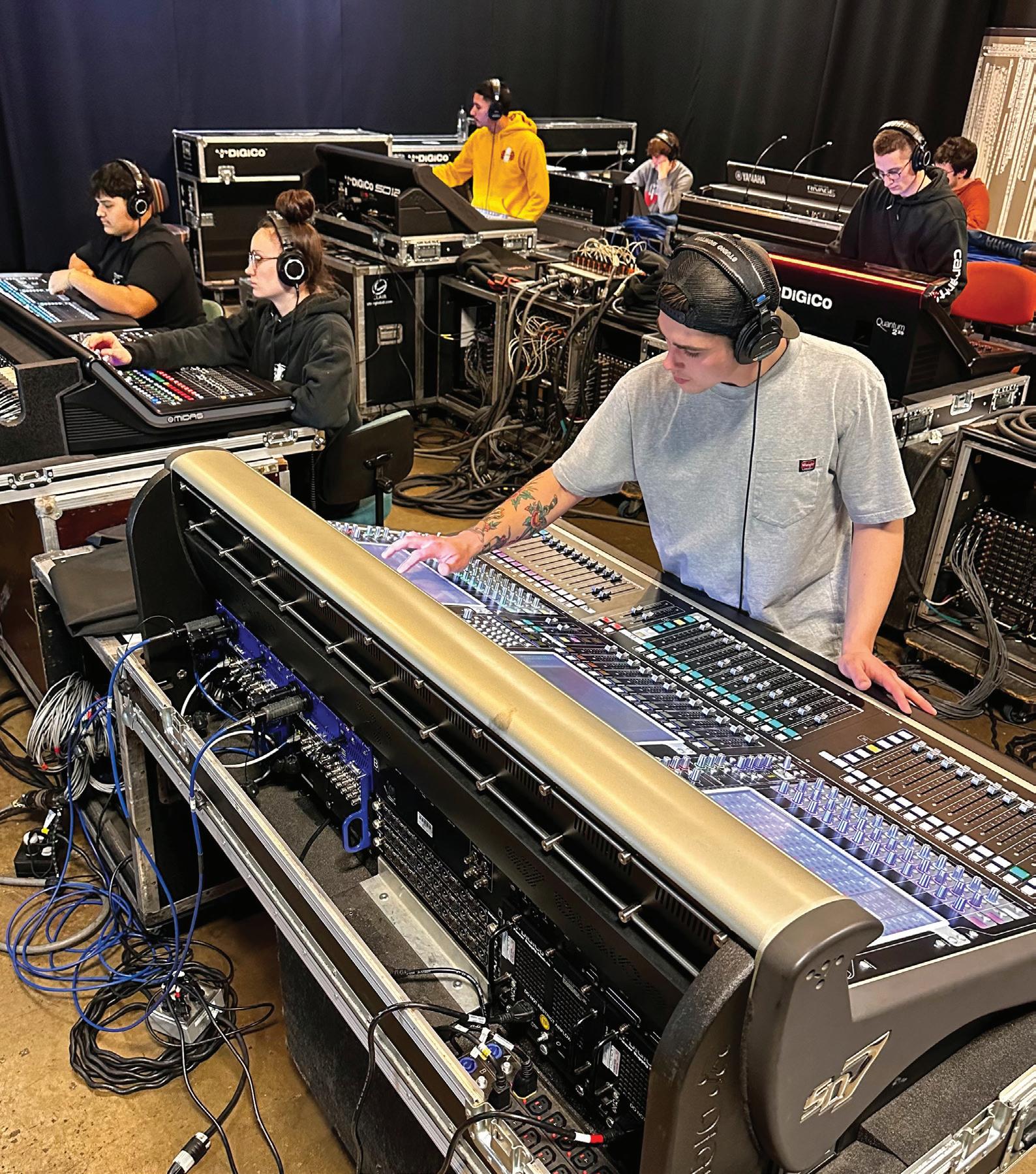
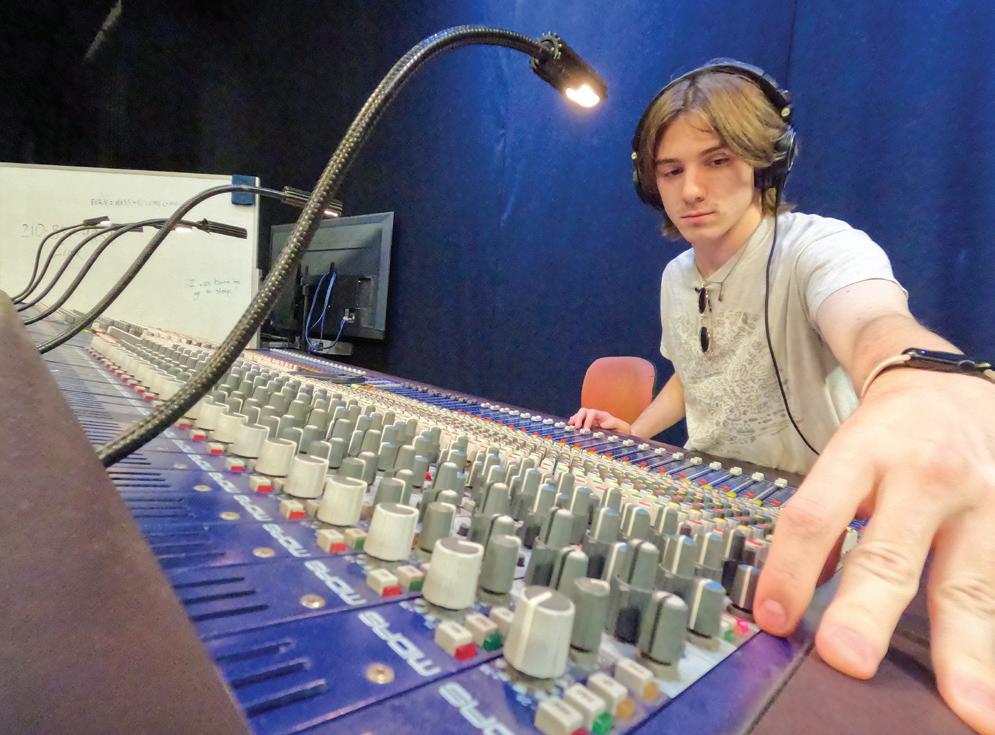
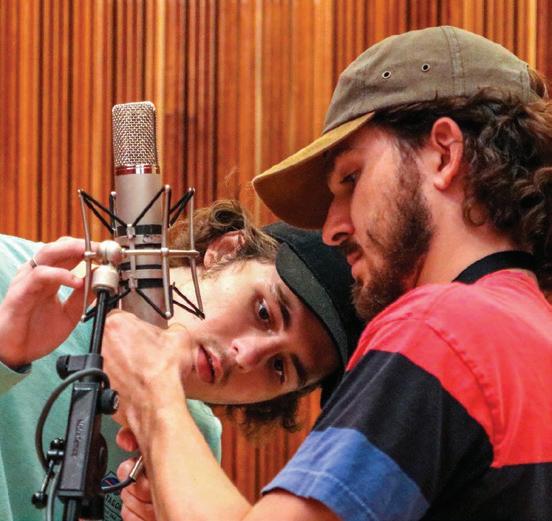
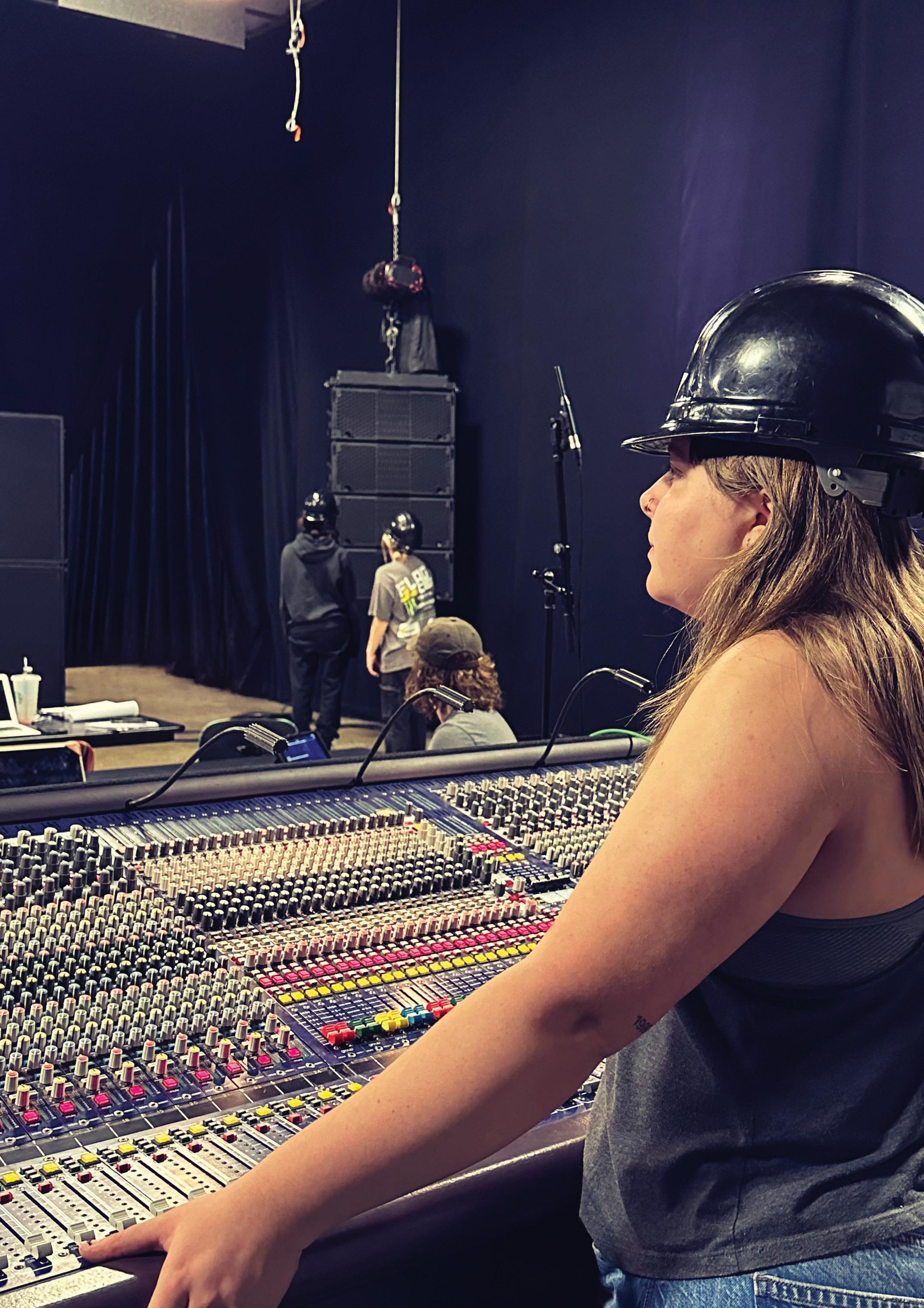
WE CONCENTRATE ON DOING, INSTEAD OF TALKING ABOUT IT.

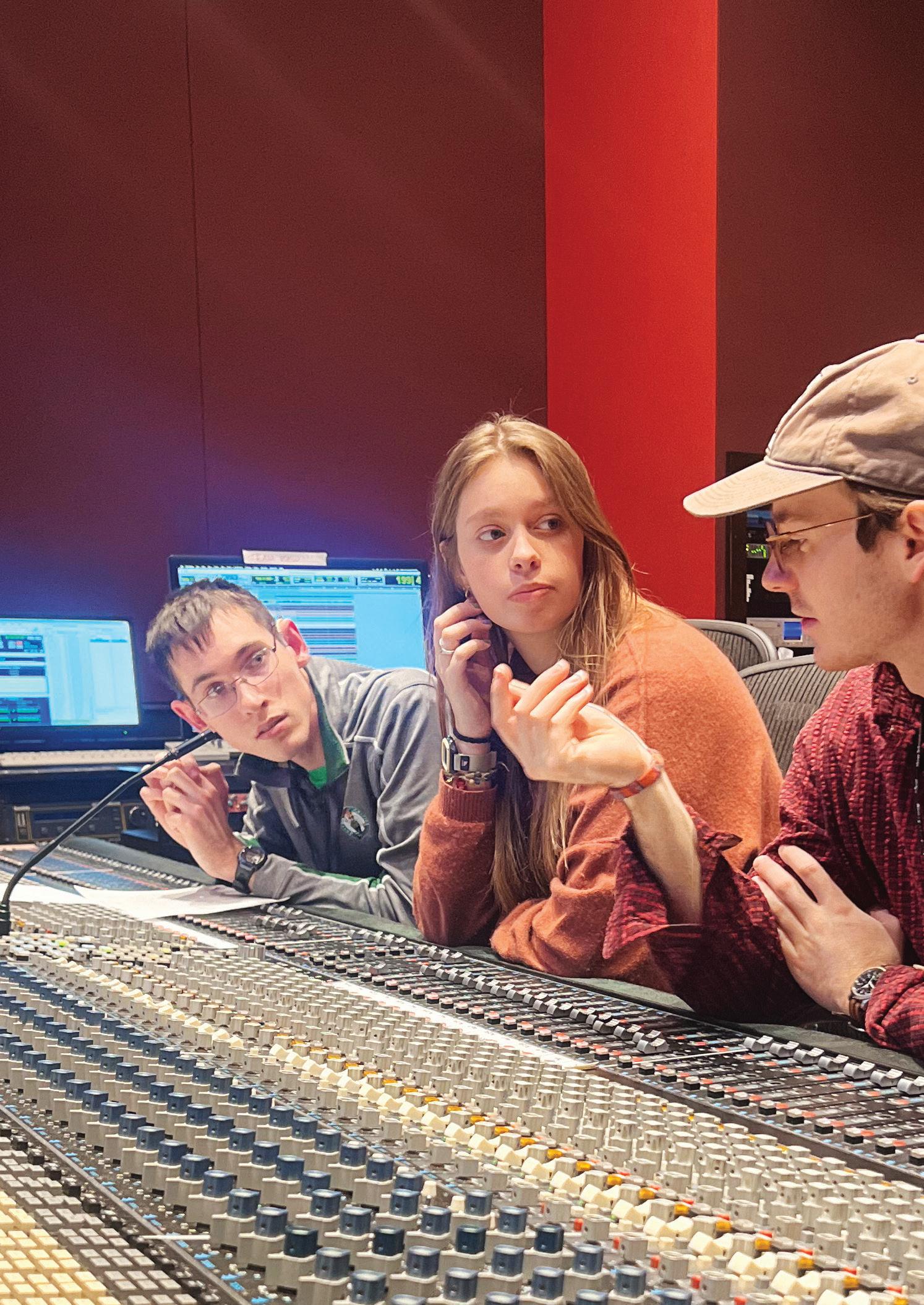
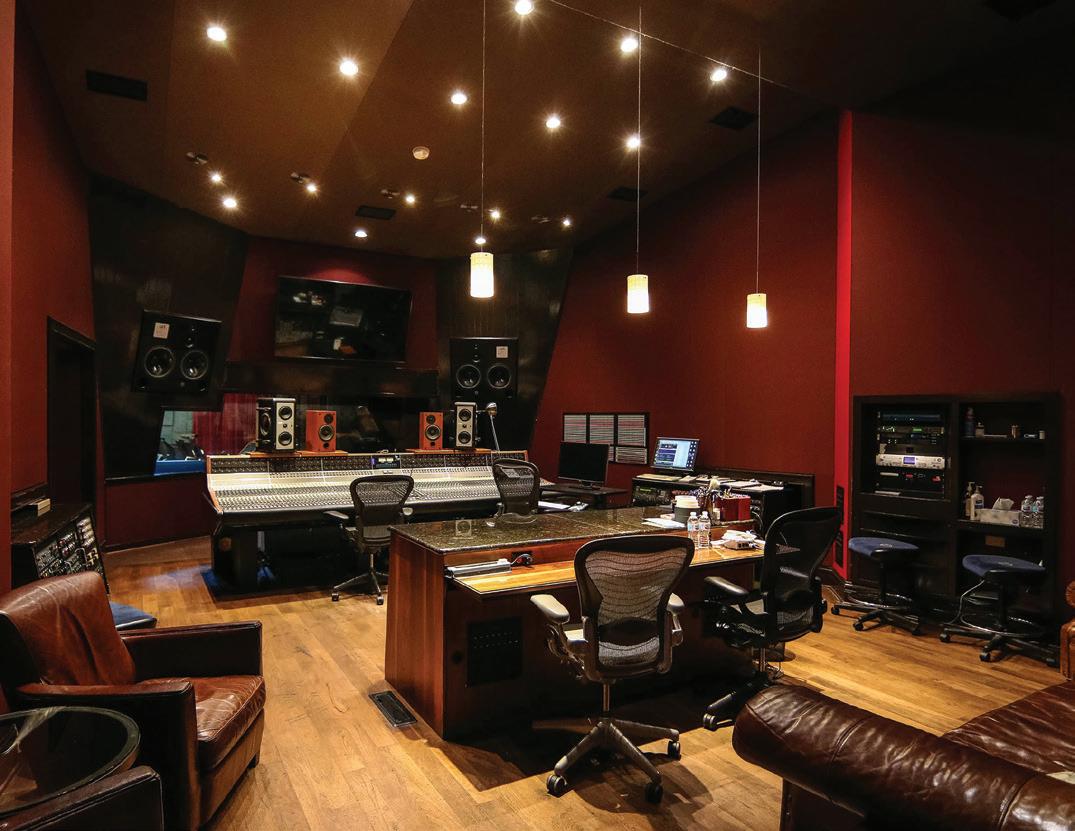
The Blackbird Academy’s Recording Laboratory accommodates 30 students and uses three large video screens and high-definition cameras for an unparalleled learning experience. The lab is also a fully-equipped recording studio featuring high-quality audio playback, an API 1608 console, a Pro Tools HD system, and outboard gear from Blackbird’s extensive collection.
Each student is seated at a station equipped with a hybrid interface/console, a computer with video display and headphones for monitoring and critical listening. All stations have Pro Tools and other software used for recording and mixing. The room is networked, meaning students can record the same audio being fed to the instructor’s rig from the isolation booths and other locations in the complex.
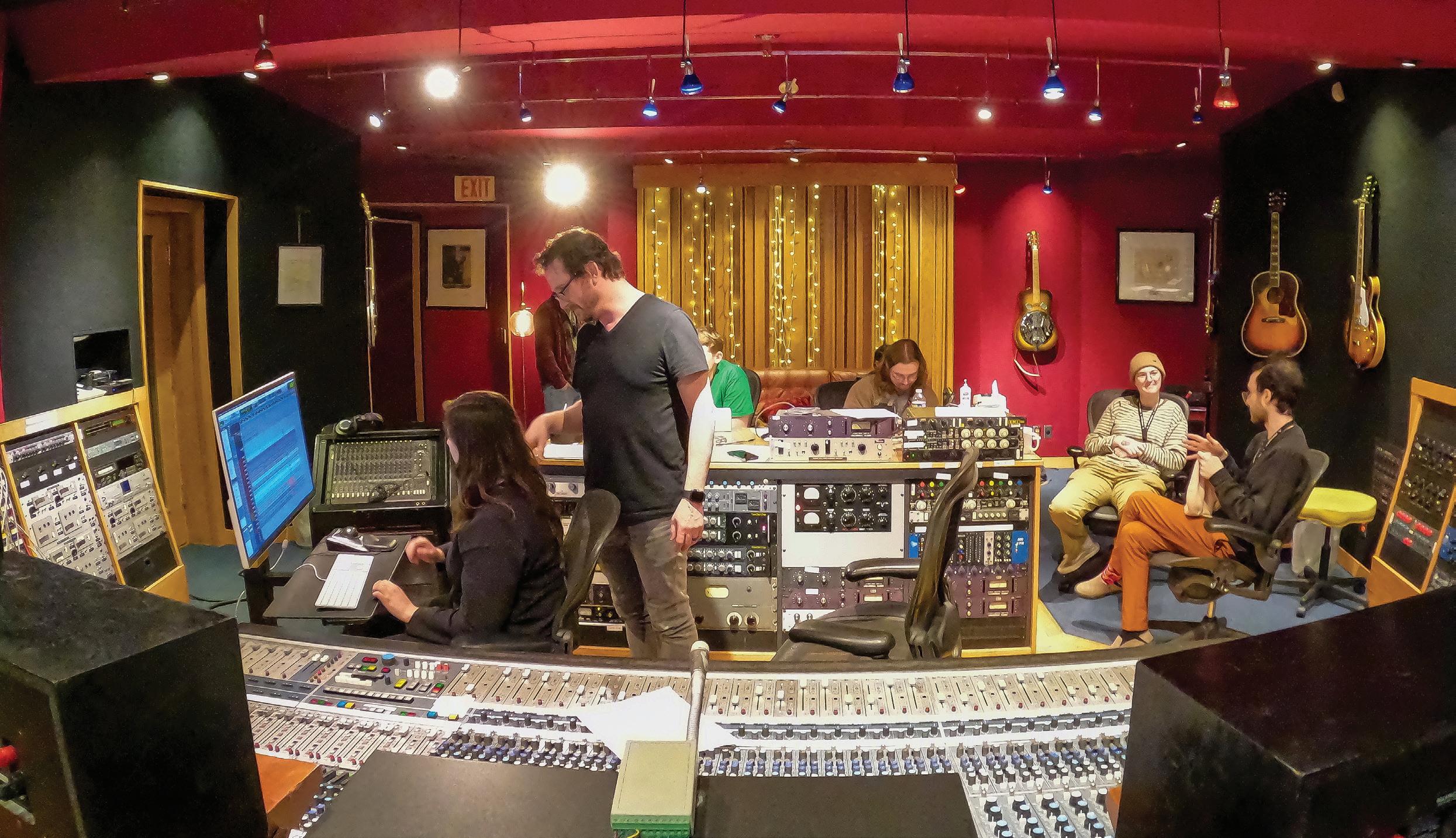
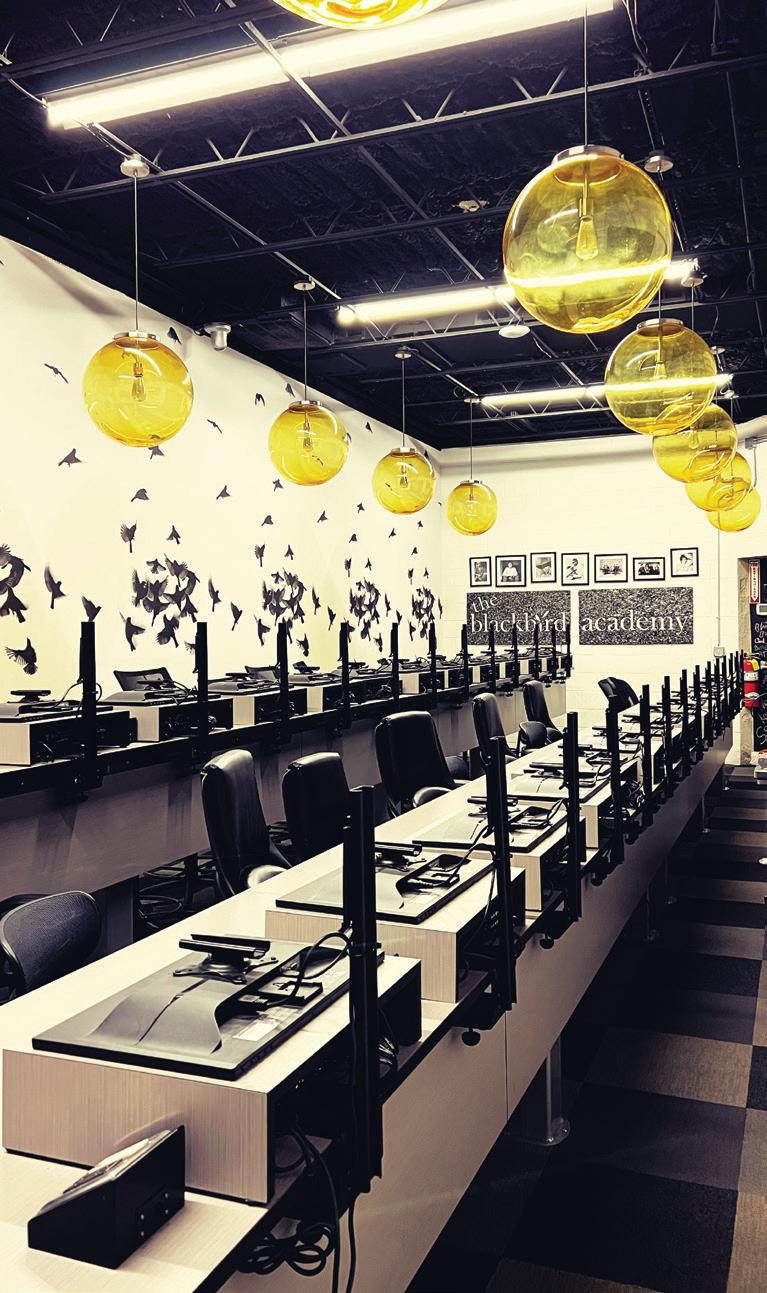
Studio A: Known for its spacious live room and impressive acoustics, Studio A has 11 recording spaces and Blackbird’s famous 72-input Neve 8078 console. ATC 300s work as main monitors.
Studio B: A versatile space used for light tracking, overdubs, and mixing. Studio B features a 48-channel API Legacy console.
Studio C: The finest immersive mix and playback environment in the world, Studio C excels in Dolby Atmos and Sony 360 projects. It’s ideal for mixing and smaller tracking sessions, too.
Studio D: A large tracking studio with seven recording spaces and three amp lockers, Studio D boasts a gorgeous 96-channel API Legacy Plus console with automation and ATC 300 monitoring.
Studio E: Compact yet powerful, Studio E has a 24-channel Neve 8058 console and is used for overdubs, editing, and mixing.
Studio F: The most versatile mixing/editing room, Studio F is a Dolby Atmos mixing suite that also houses a state-of-the-art SSL ORIGIN console for stereo mixing.
Studio H: Ideal for mixing and smaller tracking sessions, Studio H features an API 1608 console, alongside vintage gear.
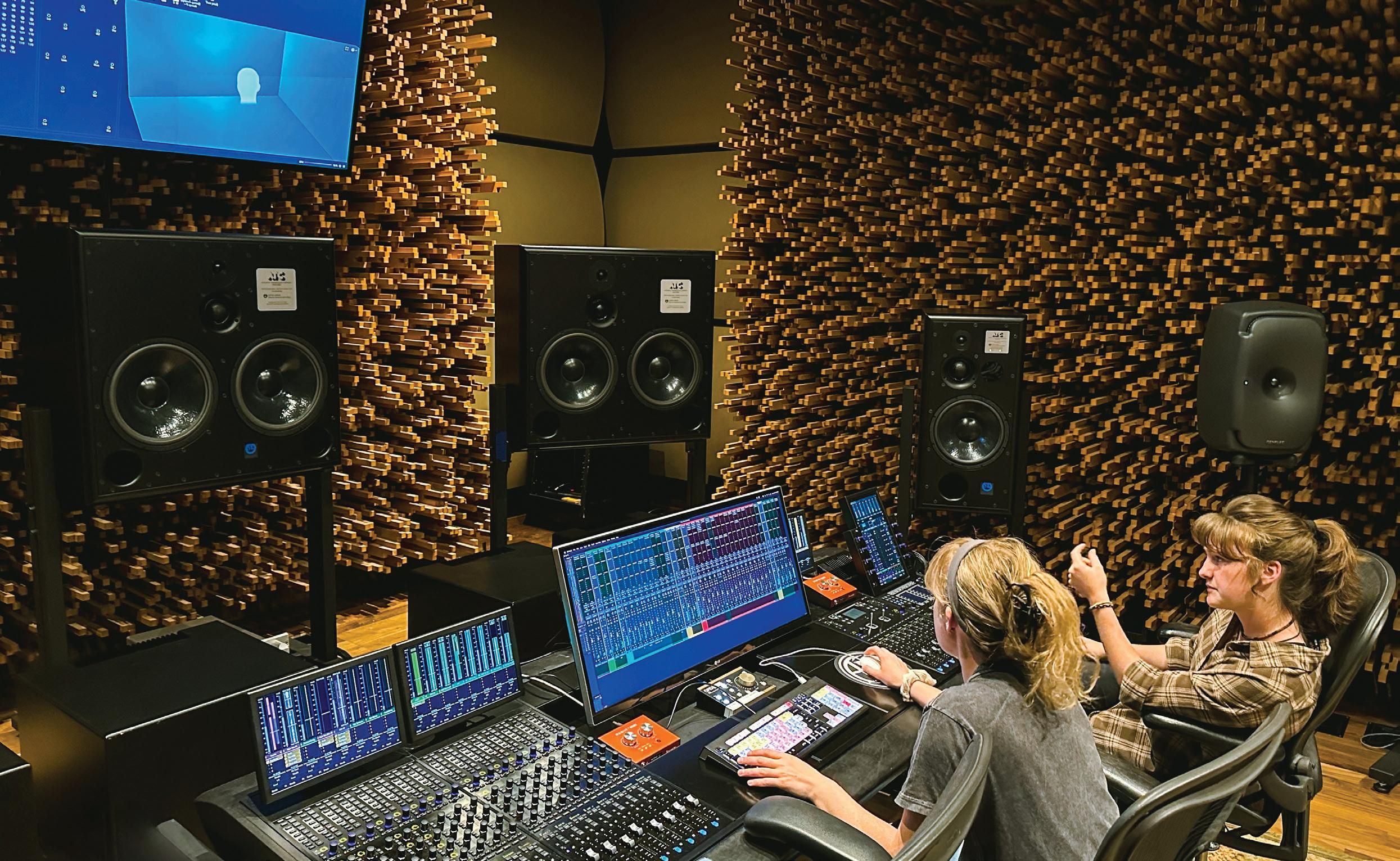
Studio I: Above Studio A’s “Live” room, this hybrid desktop recording, mixing, and mastering environment features Pro Tools HDX and 32 channels of analog summing from Dangerous Music.
Studio J: Housed in the main Academy building, J is exclusively for teaching and student use and features an API The Box setup.
The Blackbird Academy’s mics, consoles, outboard gear, and mixing and rehearsal spaces are unparalleled. As a student, you earn on the same equipment used by the pros.
• Workstations: Each student has a personal workstation with Focusrite RedNet X2P, Dante, and ProTools in the classroom.
• Extended Access: Students can use audio labs and equipment outside of regular hours for assignments or to practice recording and mixing.
• Industry Mentorship: Work alongside industry pros and guest mentors during classes, live rehearsals, and training events.
• Networking Opportunities: Attend site visits to Nashville’s live venues, broadcast outlets, and audio-related businesses for more real-world exposure.

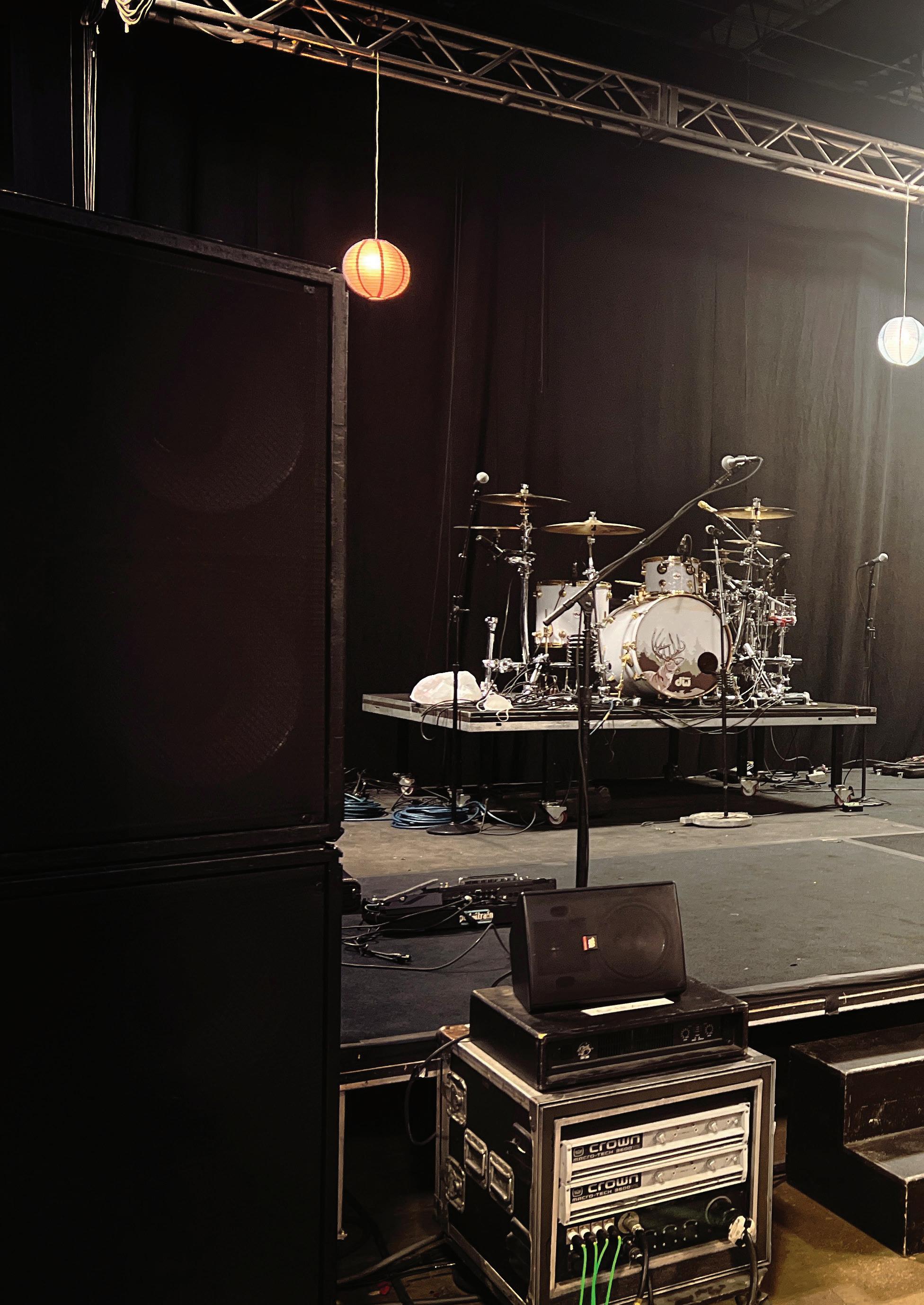
See what you’ll learn, page 26.
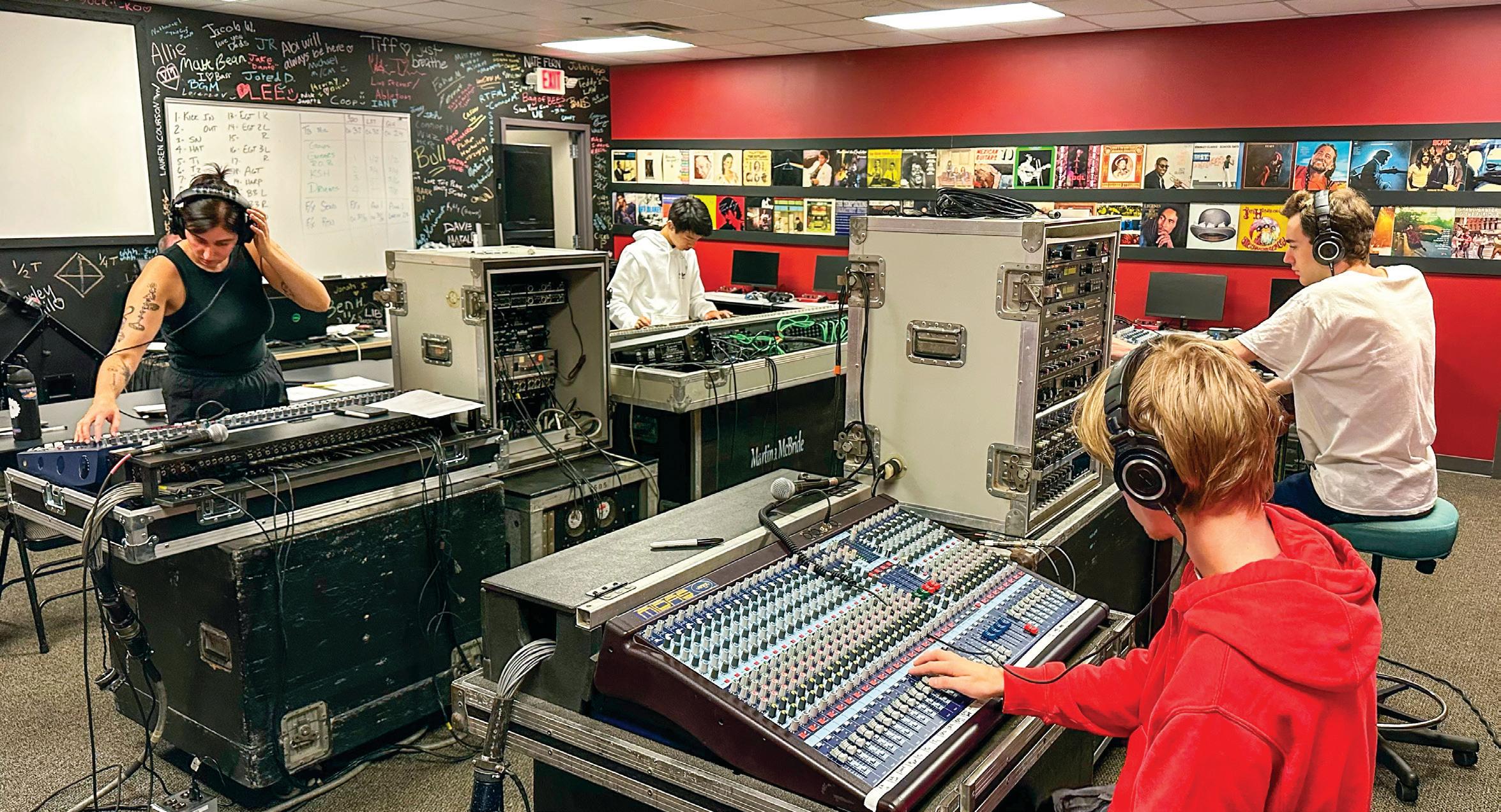
Because we are affiliated with Clair Global, the world’s largest sound company, we also have access to consoles in their extensive inventory.
ANALOG CONSOLES
Midas Heritage 3000
ATI Paragon
Yamaha PM4000 (FOH version)
Yamaha PM4000m (monitor version)
Soundcraft GB2
Allen & Heath GL-4
Midas Venice 320
5x Mackie 1604
DIGITAL CONSOLES
Allen & Heath dLive S5000
2x Digico SD8
Soundcraft Vi1
2x Midas M32
2x Soundcraft SiPerformer Digidesign ProControl
2x Yamaha PM1D
2x Allen & Heath SQ7
95%
The percentage of Live Sound graduates who are employed in the industry within six months of graduation.
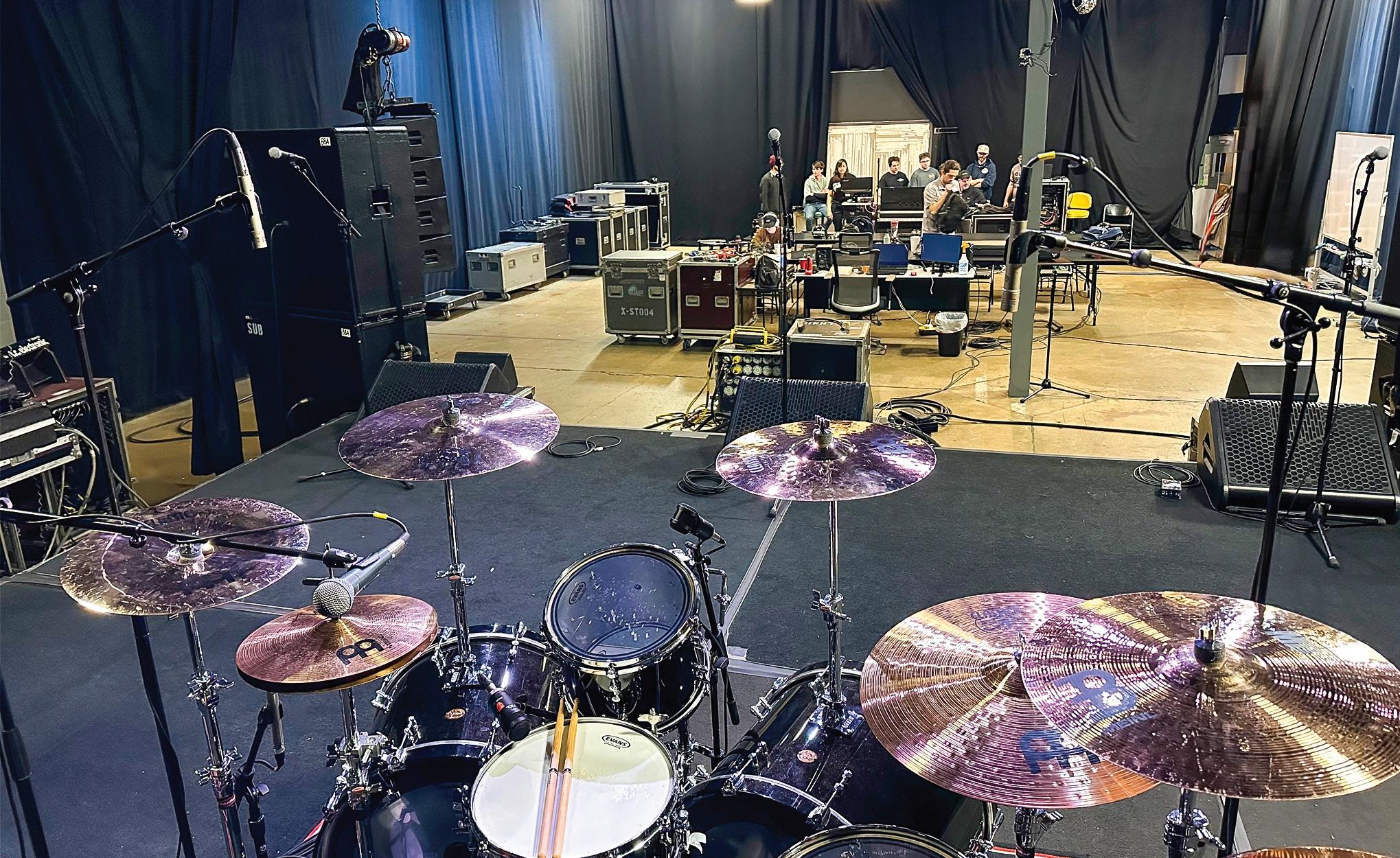
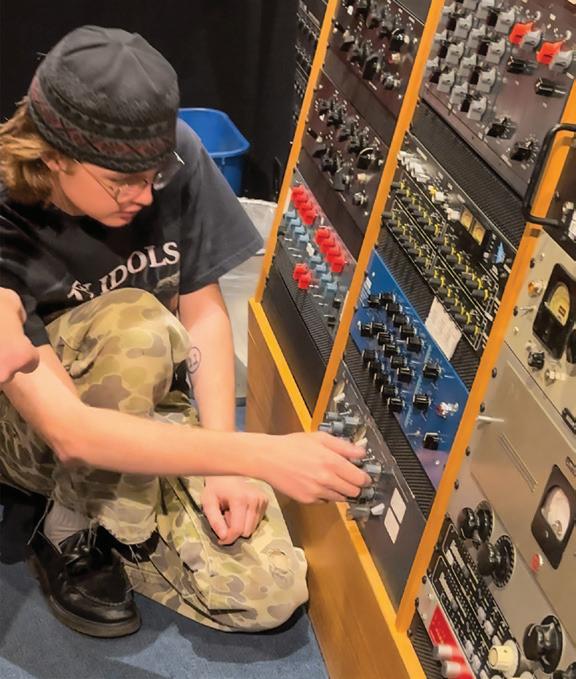
Outboard compressors, EQs, reverbs, effects processors and preamps are the tools that take any mix, overdub or tracking session to the next level. Blackbird’s collection is one of the best in the world, featuring processors from over 90 companies and some historical gear not often found under one roof. The selection includes coveted units both old and new from Telefunken, EMI, Fairchild, Shadow Hill, Helios, Decca, Pye, RCA, Chandler Limited, Tube-Tech, UREI, AMS, Inward Connections and much more.
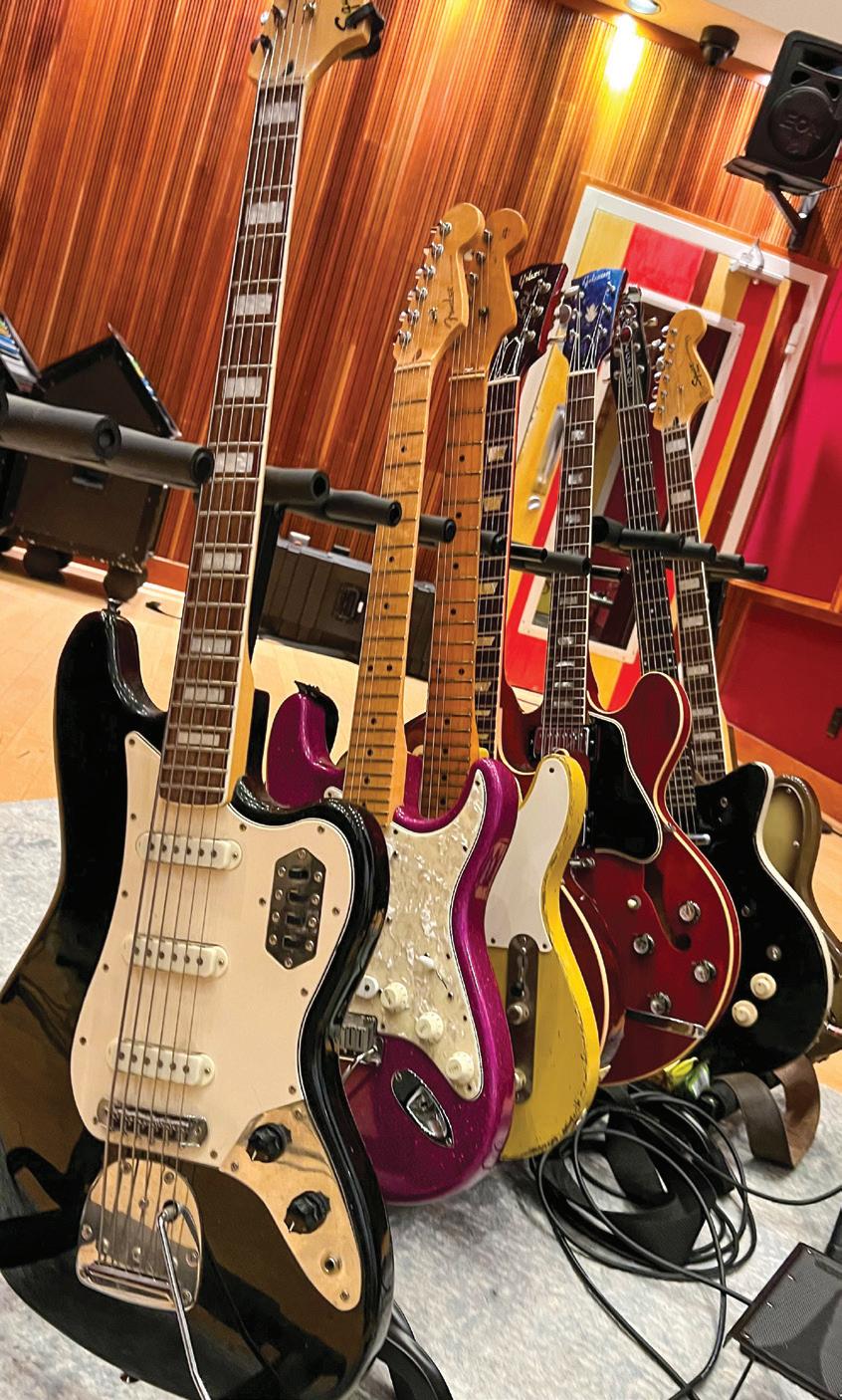
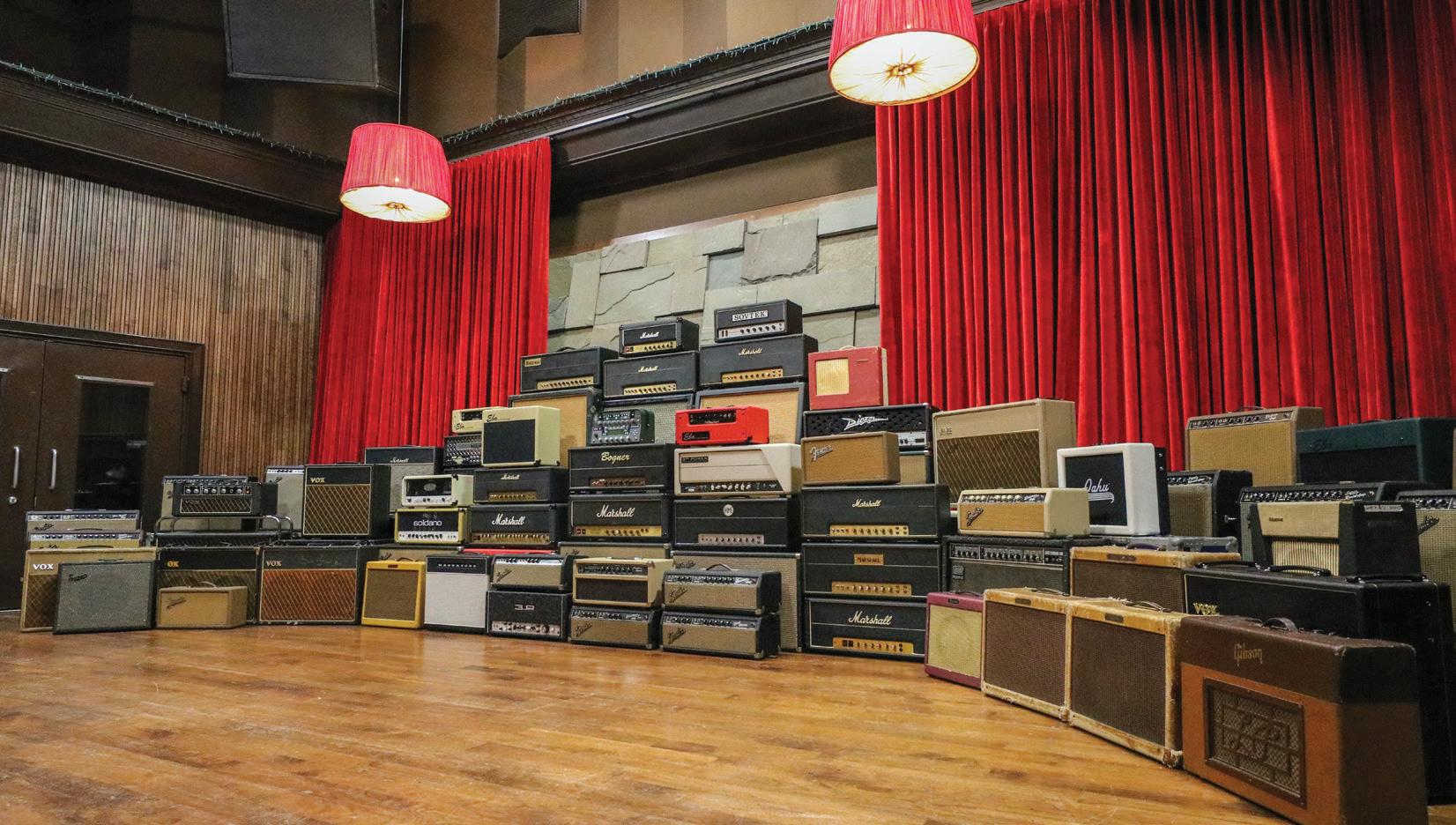
1,400+ mics, 80 amps, 70 guitars, 65 full drum kits.
The production and learning environment at The Blackbird Academy goes well beyond studio recording, overdubbing and mixing. All productions begin with musicians, and our instrument, amplifier and drum collections are unequaled. Students will be taught the impor-
tance of choosing and setting up a guitar and amplifier before the Record button is pushed; if the source is not right, no microphone, console or good intention will be able to fix it later. Blackbird’s amplifier collection includes more than 80 vintage and new units from Fender, Marshall, Gibson, Matchless, Vox, Ampeg, Watkins, Mesa Boogie, Dumble and many more.
Students are trained on the same equipment used by the producers, engineers, musicians, and recording artists who have created countless hit records at Blackbird Studio.
Blackbird’s drum collection delivers a powerful groove with more than 48 vintage kits and 50 vintage snares. Top Nashville drum techs guide students through the techniques used to prepare these kits for high-quality recordings. The collection features renowned manufacturers like Gretsch, Craviotto, Camco, Slingerland, Dunnett, Ludwig, Leedy, Pearl, Rogers, Sonor, WFL, Yamaha, and more.
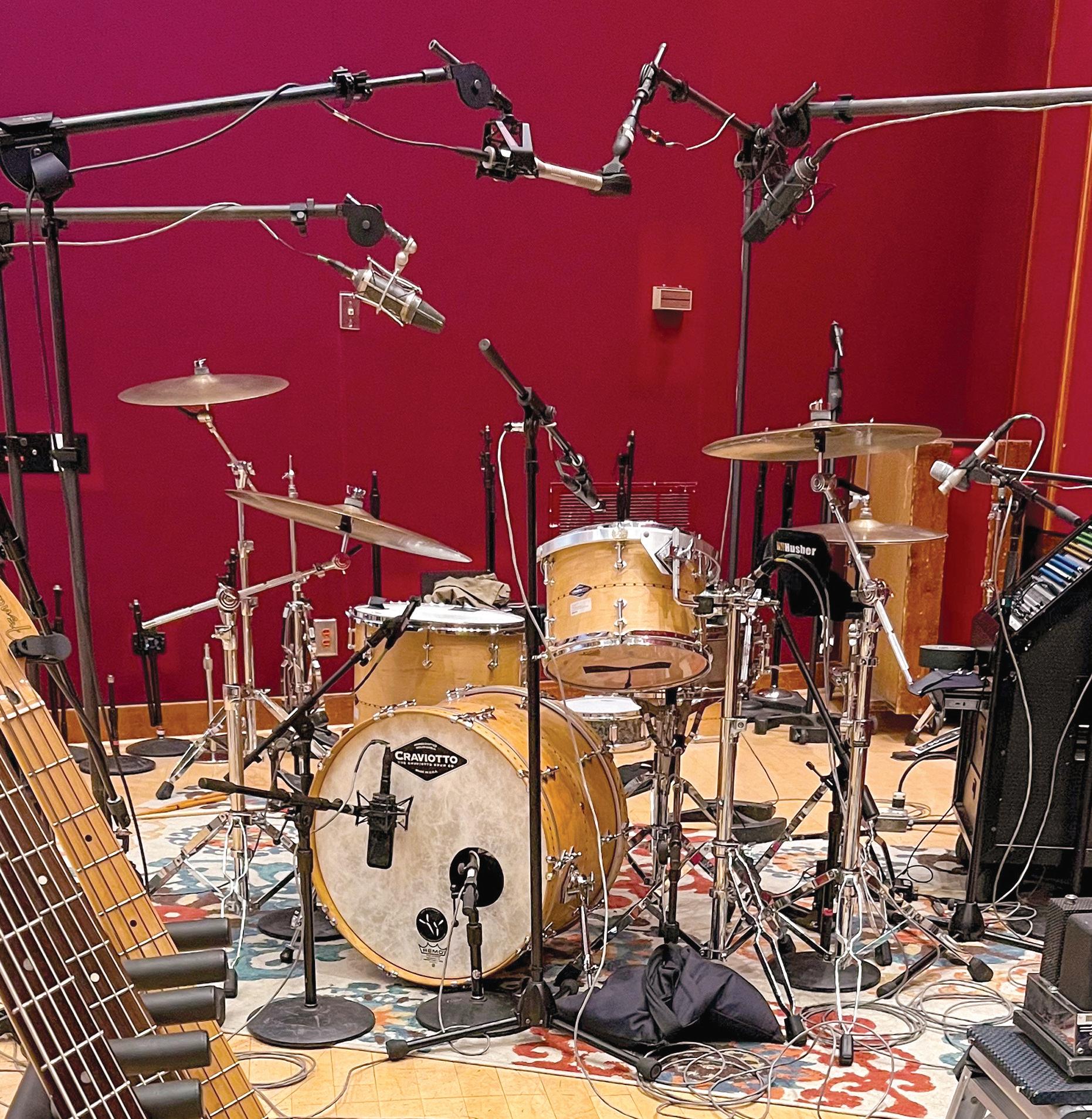

Getting access to the single best collection of microphones in the world is one of the things that makes The Blackbird Academy education so unique. The Blackbird Academy’s microphone locker has more than 1,400 mics on hand, including U47s, Telefunken 251s and Elektroakustic RFTs, AKG C12s, Neumann U67s, M50s, M49s, M269s, classic small diaphragm tube mics, and many more.
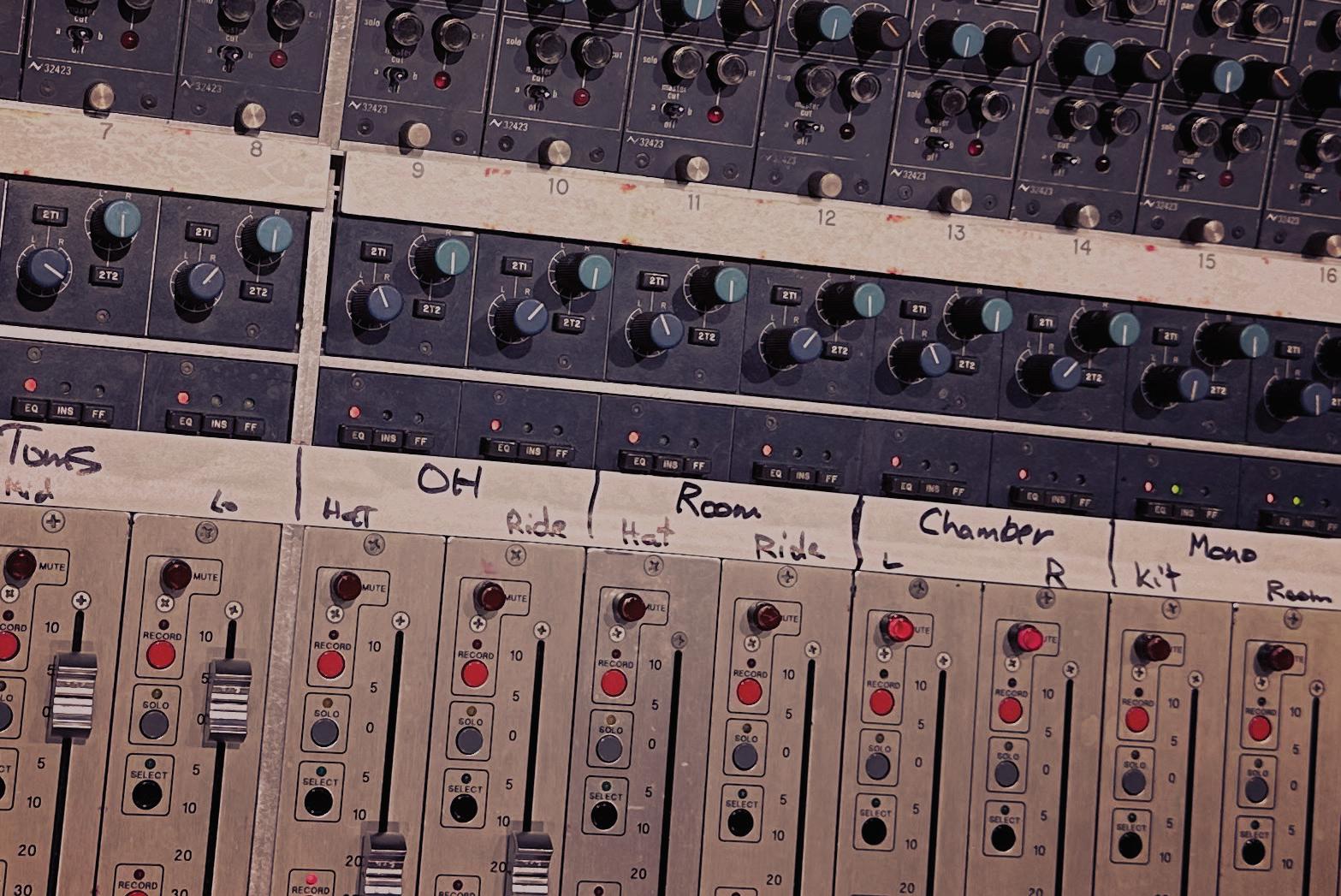
JOHN MCBRIDE OWNER/PRESIDENT/INSTITUTIONAL DIRECTOR
John McBride is a visionary in the audio industry, known for his expertise in live sound, tour management, and studio recording. He began his career by founding MD Systems in Wichita, Kansas, a live sound company acquired by Clair Global in 1997.
In 2002, John and his wife, multi-platinum-selling artist Martina McBride, realized a lifelong dream by opening Blackbird Studio in Nashville. The studio rapidly became a top recording facility, attracting top artists, musicians, producers, and engineers from around the globe.
A champion of analog recording, John has curated one of the largest and most revered collections of vintage and modern recording equipment, including an unmatched microphone collection.
Driven by his passion for audio and a desire to share his knowledge, John launched The Blackbird Academy in 2013 to provide hands-on, professional audio engineering education. His work has earned him recognition, including the prestigious Educator Award and Live/ FOH Award at the 2014 Pensado Awards.
John McBride’s legacy continues to shape the future of audio education and recording excellence, making him a true pioneer in the industry.
JEREMY COTTRELL DIRECTOR OF STUDIO ENGINEERING & INSTRUCTOR
After graduating from The Conservatory of Recording Arts and Sciences in Tempe, AZ in 2000, Jeremy moved to Nashville and started his career at Sound Stage Studios, working with artists like Wynona and Peter Frampton. He then joined Sputnik Sound, where he contributed to the Grammy-winning album The Eleventh Hour by Jars of Clay. While working on Jars of Clay’s live DVD, 11Live, Jeremy met John McBride, which led to recording live concerts for artists like Martina McBride and ZZ Top. In 2002, he became a staff engineer at Blackbird Studio.

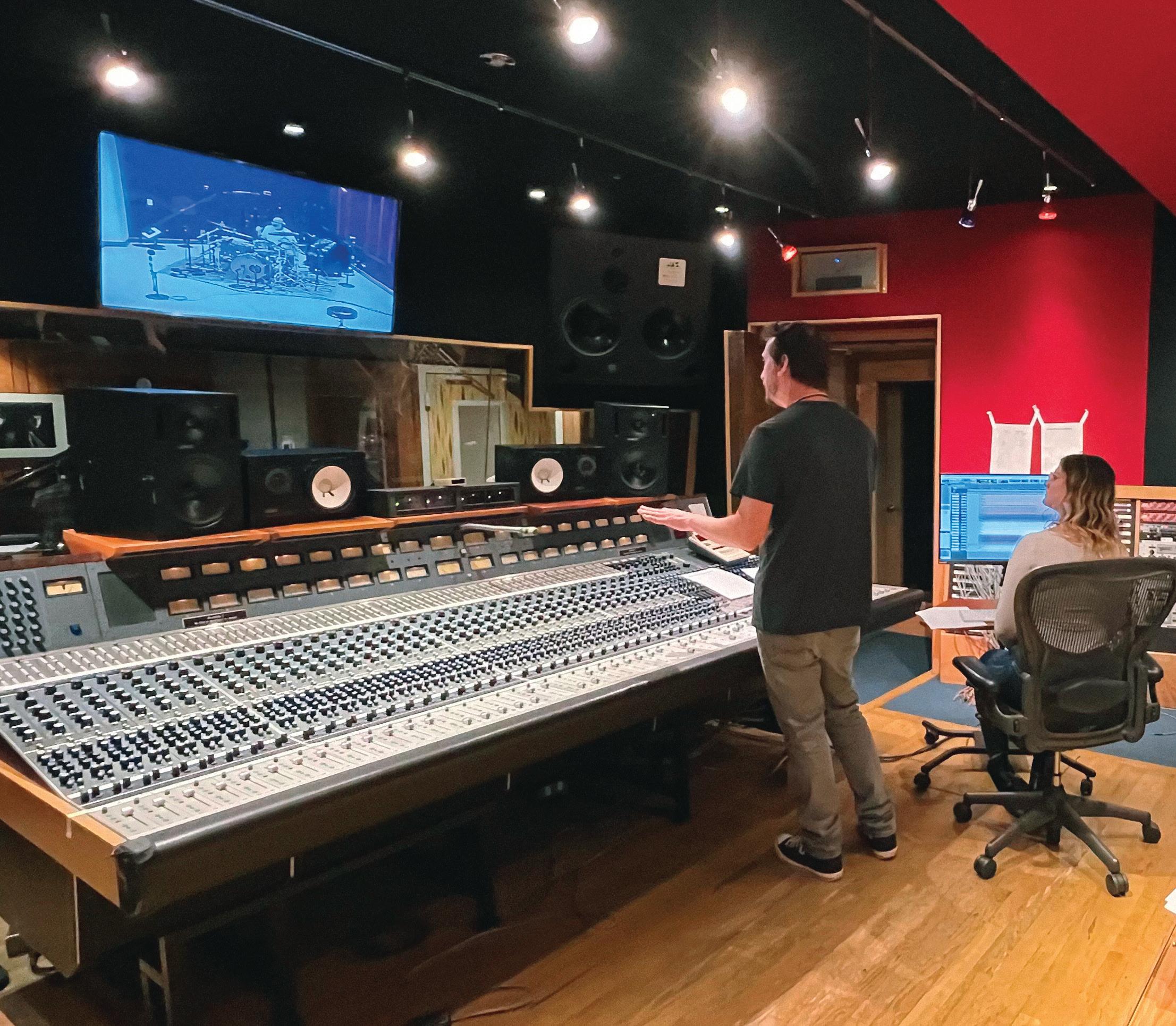
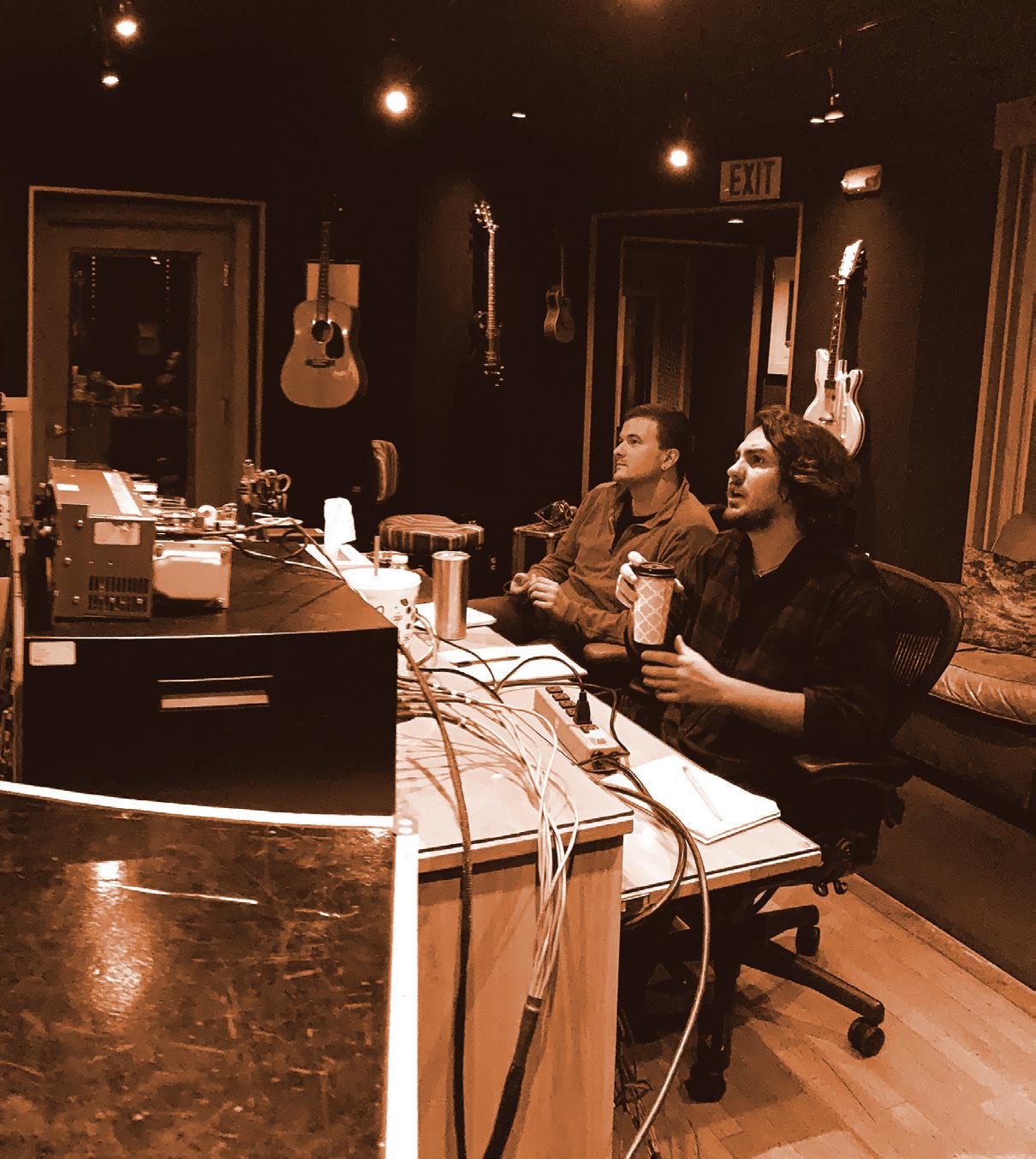
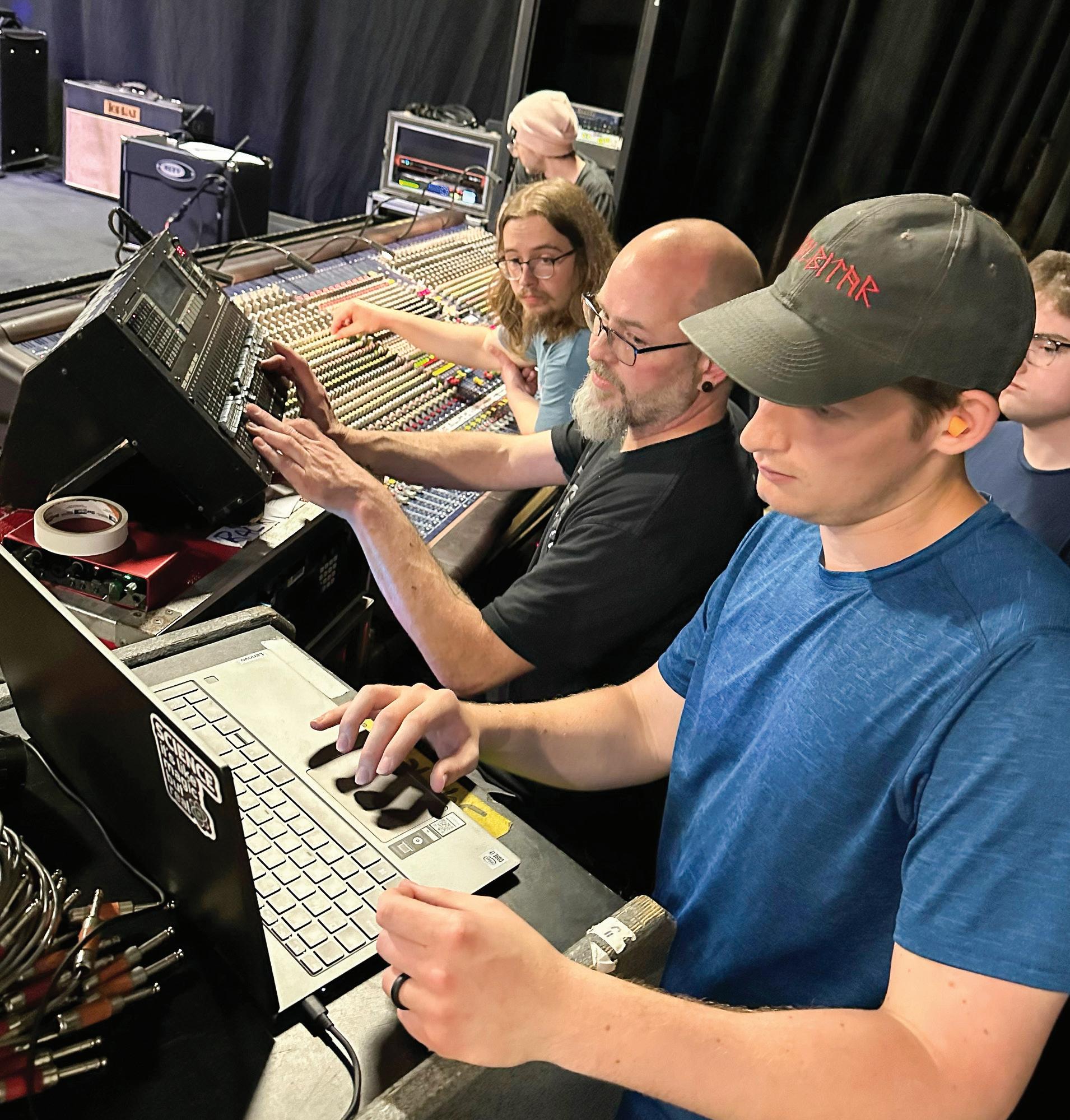

At Blackbird, Jeremy’s expertise has attracted a diverse array of artists, including Sheryl Crow, Faith Hill, Tim McGraw, Keith Urban, Alison Krauss, The Red Hot Chili Peppers, and more. He’s also a published songwriter, with songs recorded internationally through Melody Roundup Music (2010–2012), and is a BMI member. Jeremy joined The Blackbird Academy as an engineer/instructor when it opened in 2013. In this role, he’s led students in recording sessions with artists like Jim Lauderdale, Exile, and Garry Tallent of The E Street Band.
INSTRUCTOR/STUDIO ENGINEER
Lucas is a Connecticut native and a University of New Haven alumni. After graduating, he moved to Nashville and quickly became a member of the engineering staff at Blackbird Studio. In addition to his work at Blackbird, he’s served as an audio technician at the
Schermerhorn Symphony Center, where he’s assisted the Nashville Symphony and artists like Kellie Pickler, Chris Daughtry, Branford Marsalis, Michael W. Smith, and CeCe Winans.
Lucas has worked on a range of projects for recording artists such as Willie Nelson, Kane Brown, Thomas Rhett, Keith Urban, Jason Isbell, Amanda Shires, Justin Hawkins, JoJo, Yelawolf, Brian Kelley, Elle King, Carrie Underwood, Thompson Square, Lady A, Cam, and Sasha Sloan.
LUCIEN PATTEN
INSTRUCTOR/STUDIO ENGINEER
Lucien’s passion for music and recording started early—he got his first guitar at seven and spent weekends shadowing in his father’s studio. After six years of honorable service in the U.S. Army, he moved to Nashville to study at The Blackbird Academy. Following his graduation and internship at Blackbird Studio, Lucien was hired full-time as a night manager, and
also took on roles as an instructor and liaison for the University of New Haven’s study away program.
In addition to teaching, Lucien works as a freelance engineer and assistant at Blackbird, where he’s had the chance to work with artists like Garth Brooks, Tim McGraw, Jelly Roll, Mickey Guyton, Tucker Wetmore, Dylan Gossett, Sam Barber, Craig Morgan, Amanda Shires, JohnnySwim, Jelly Roll, Lynyrd Skynyrd, and Fitz and The Tantrums.
SCOTT BREWER
DIRECTOR OF LIVE SOUND
Scott has been immersed in music for over twenty years, starting out as a musician before transitioning to the other side of the console. He studied at Guildford Tech, where he double-majored in Recording Engineering and Concert Sound & Lighting. While there, Scott freelanced for production companies and the local IATSE (International Alliance of Theatrical Stage Employees), which led to a role with Imagine Design and Productions as an audio engineer, systems designer, and installer. Originally from North Carolina, Scott joined The Blackbird Academy in 2017 to lead the Live Sound Engineering program.
Rich came to The Blackbird Academy from Clair Global, where he worked in IT and as an audio engineer for over 27 years. Originally from Omaha, Nebraska, Rich began his career in high school, working for a regional company doing lighting and monitor mixing. This experience sparked his passion for audio, which he developed during his time as an Electronics Tech in the Navy.
Over his career, Rich has taken on various roles, including audio engineer, lighting director, radio broadcast engineer, and A/V Tech for a top-50 law firm. At Clair Global, he engineered for many bands but spent most of his time on the road with Little Texas and Collin Ray. Rich joined The Blackbird Academy in 2019.


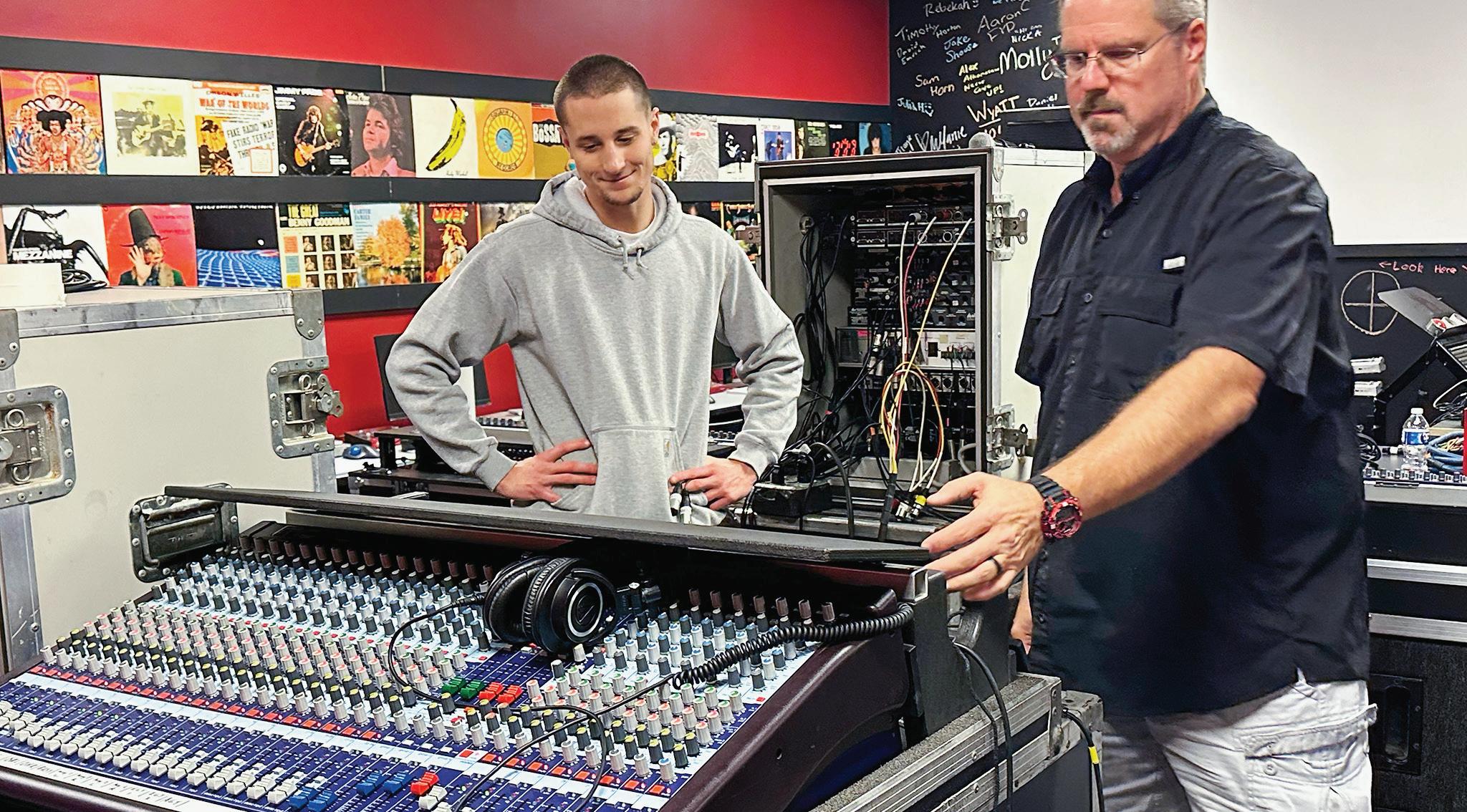

CARMA DICIANNI DIRECTOR OF STUDENT OPERATIONS & MARKETING
Carma is responsible for strategically building, executing, and maintaining our student and alum programs, overseeing the creation/ implementation of communication and marketing materials for the school, and being financially responsible for the Academy. Carma also oversees the management and operations of recruitment, admissions, enrollment, and orientation services at The Blackbird Academy.
Carma has been in the education and music industries for over 25 years. In the music industry, she has worked in recording studios, tour management, and as a professional event/concert photographer. Carma has worked with artists/ bands including Bon Jovi, Stone Temple Pilots, Ted Nugent, Alice Cooper, Marty Stuart, Travis Tritt, and many more. Carma has taught at the high school, university, and corporate levels and has degrees in Education, Audio Engineering, and Entertainment Business.
BLAIR GALLIMORE
HR DIRECTOR/ACCOUNTS MANAGER
Blair is the Human Resources Director for The Blackbird Academy and Accounts Manager for Blackbird Studio. Blair graduated from Belmont University in 2009 with a Music Business degree. While at Belmont, she interned at Blackbird Studio and ultimately was hired as the Client Services/ Administrative Assistant. Blair has been in her current role since 2017.
CAREER SERVICES MANAGER
Amber assists our studio and live sound engineering students in their pursuit of internship/job opportunities. She provides career advising services, including resume/ cover letter writing, interview prep, application assistance, networking, and job search strategies. Amber is the liaison with our employer clients, and her outreach efforts create new employment opportunities for our students and alums. Amber holds a Bachelor’s degree from the University of Arkansas and an Associate’s degree in Audio Engineering from SAE Institute.
MARIAN MATTHIS
DIGITAL MARKETING DIRECTOR
Marian manages the social media channels, websites, advertising, and graphic design for The Blackbird Academy and Blackbird Studio.
Marian has been a freelance designer at Big Moon Marketing since 2000. There, she found her love for designing everything related to music and created materials for George Strait, Trisha Yearwood, Dolly Parton, Lee Ann Womack, Earl Scruggs, and more. Marian is a former Managing Editor Admin & Design and Marketing Director at The Tennessean newspaper in Nashville. She holds a BS in Marketing from Murray State University and an MBA from Vanderbilt University.
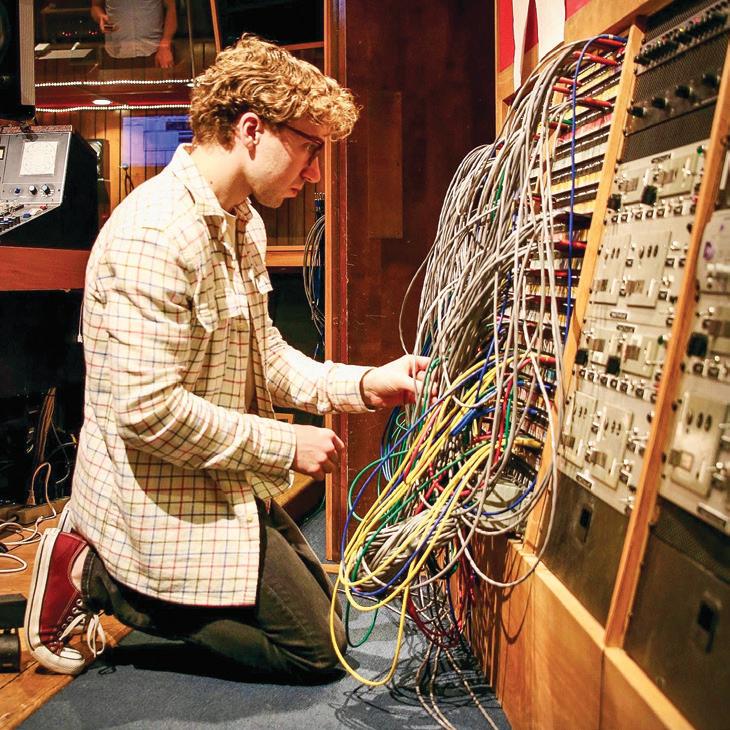
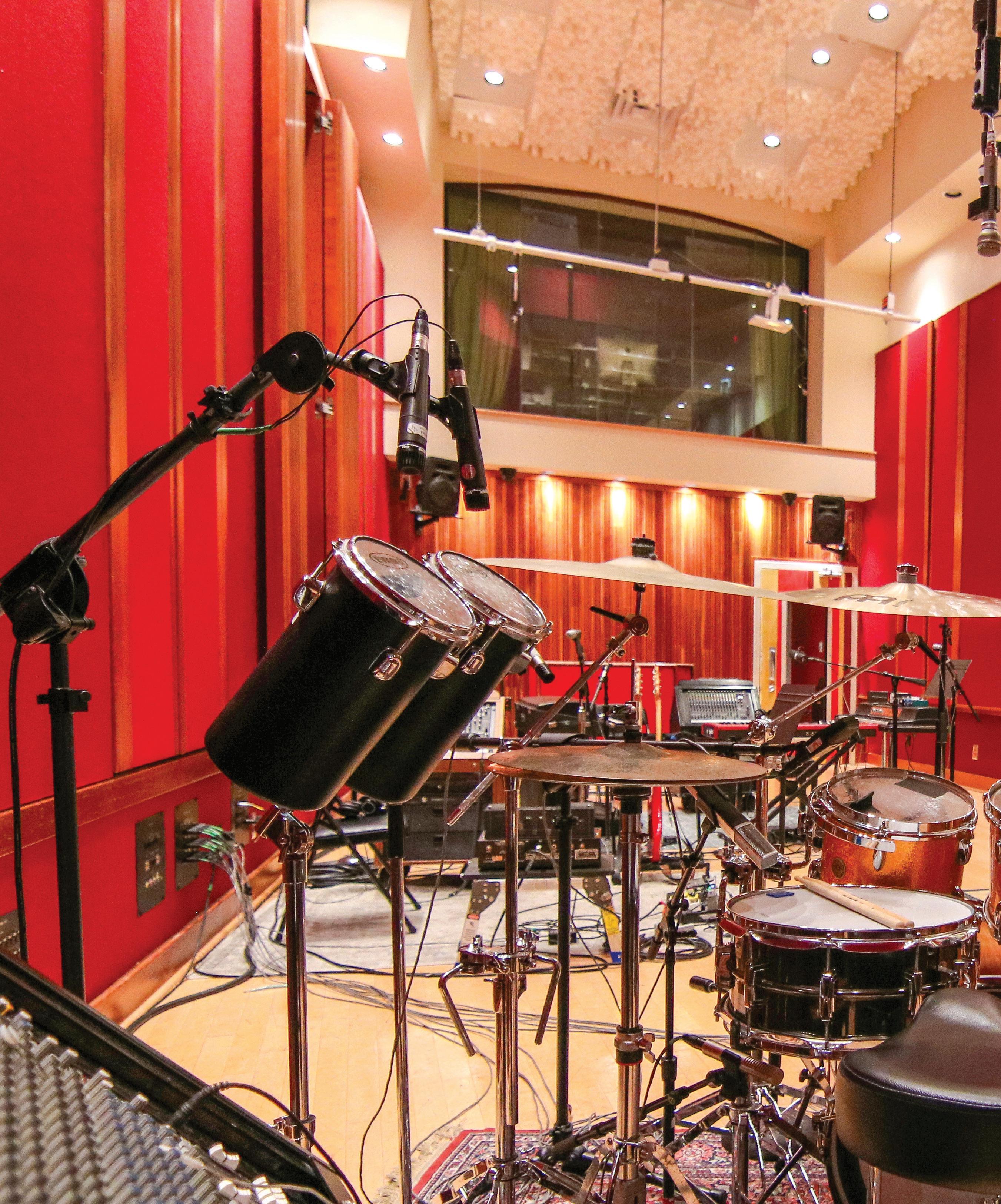
LOCATION: 2806 AZALEA PL, NASHVILLE, TN 37204
PROGRAM LENGTH: 24 WEEKS (HOURS MAY VARY FROM 9AM TO 7PM)
TUITION: $23,100
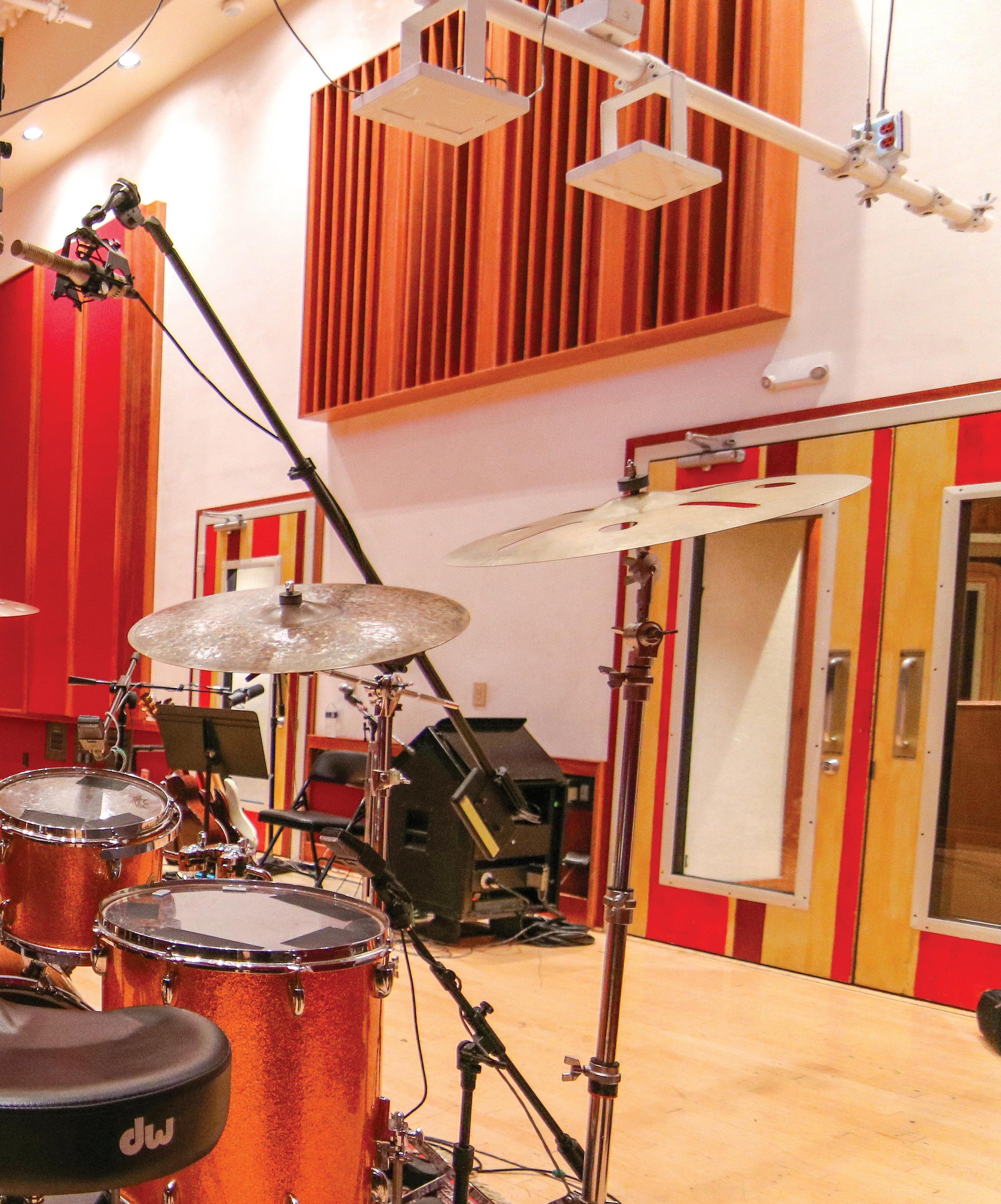
WEEK 1
INTRO, LISTENING, RECORDING, CAREERS & PROFESSIONALISM
Introduction to staff and instructors, Blackbird Studio tour and technical orientation. Orientation and preparation. Ears-on listening, introduction to Pro Tools. Overview of recording processes, hands-on recording, care and handling of gear. Overview of careers. Guest speakers and field trip visits, in person or online.
WEEK 2
SIGNAL FLOW, MIXING CONSOLES, CAREERS & PROFESSIONALISM
Careers overview continued. Mixing console and patching systems. In-depth examination of signal flow and trouble-shooting. Comprehensive study of the API 1608 mixing console. “Ears-on” and “hot-seat” challenges. Guest speakers and visits, in person or online. Test.
WEEK 3
STUDIO ORIENTATION
Familiarization with rooms, monitors, patch bay, console and outboard gear. Microphone reports: Daily, hands-on work with a wide range of tube, solid state, dynamic, and condenser microphones. Hands-on: Session pre-production, signal flow, working with consoles, OB gear, and summing systems.
Building on Week 3. Focus on tube microphone setup and care. Compressor & EQ reports. Daily, hands-on work with a wide range of tube, and solid state processors. Familiarization with rooms, monitors, patch bay, console and outboard gear. Setting up for overdub scenarios. Written and patch bay exam.
WEEK 5
MICROPHONES
Microphone types, design, uses and placement for both studio and live recording environments. Compare and contrast microphones both classic and modern, and their placement. Classroom workshops from microphone company representative(s). Demos and workshop, mic shootouts, testing and mic recognition. Guest speakers and visits, in person or online, ears-on listening, Pro Tools exercises. Test.
WEEK 6
MUSICAL INSTRUMENTS & MICROPHONE TECHNIQUES
Learn from specialists about tuning, setup and aspects of different instruments including drums, acoustic, electric and bass guitars, vocals and more. Hands-on recording sessions: microphone and recording techniques, microphone comparisons, creative balanced/unbalanced conversions. Continuing Pro Tools and signal flow education, ear training and music education, testing drills. Guest speakers and visits, in person or online, “ears-on” listening exercises.
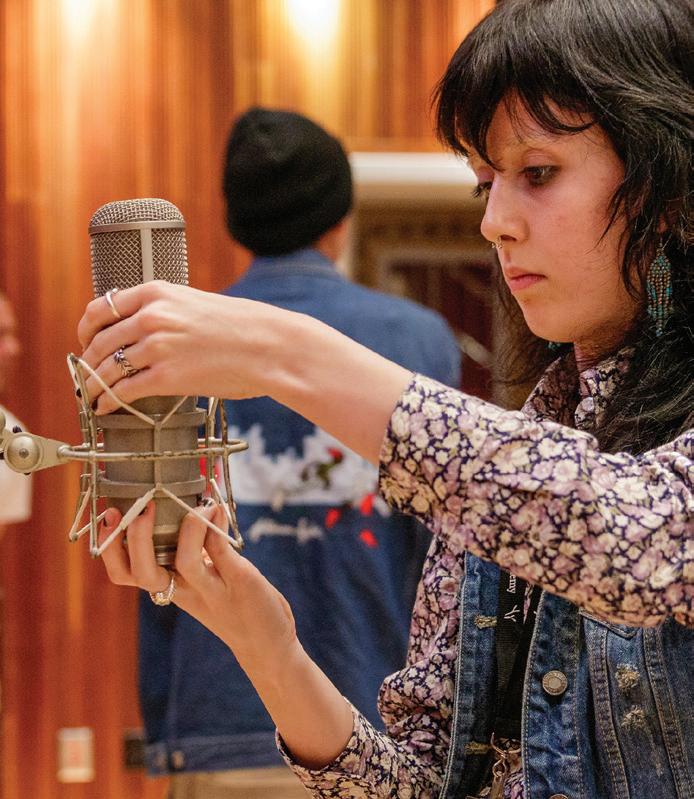
WEEK 7
TRACKING THE BAND IN STUDIO
Familiarization with new room, monitors, patch bay, console and outboard gear. Hands-on: Session pre-production, consultation with band, setup, testing, recording, overdub, mixing, mastering, and content delivery. Introduction to documentation, charts, and time keeping. Introduction to soldering on days four and five.
WEEK 8
TRACKING THE BAND IN STUDIO
Recording a live band in studio, overdubs, edits, mixing and mastering projects from other students. End of week listening session for critiquing mixes. Tracking template instruction.
WEEK 9
LIVE SOUND FACILITY VISIT
The studio engineering students visit our live sound facility for 3 days to learn live audio sound basics, setup, power, FOH and monitor mixing. The live sound students visit the studio to learn studio session setup. Recording a live band in studio, overdubs, edits, mixing and mastering projects from other students. End of week listening session for critiquing mixes.
Continued on page 24
WEEK 10
ACOUSTICS AND SIGNAL PROCESSING
In-depth investigation of multiple aspects of musical acoustics: time and space, frequency, timbre, amplitude, etc. Signal processing of all types: delays, equalization, pitchbased effects, compression, gating, limiting and more. Continued Pro Tools, signal flow, ear training, critical listening, etc. Ethics of music technology. Tests.
WEEK 11
TRACKING THE BAND IN STUDIO
Setup, testing gear and tracking a band in the studio I and II. Overdub and editing I and II. Rough mixes, cleanup and archiving. Midterm exam.
WEEK 12
PRO TOOLS DRILLS, ACOUSTICS AND SIGNAL PROCESSING
In class Pro Tools exercises and tests. Continued investigation and experimentation of acoustics and signal processing. Guest speakers and visits, in person or online. Earson critical listening. Test.
WEEK 13
TRACKING THE BAND IN STUDIO
WEEK 15
ACOUSTICS & SIGNAL PROCESSING. HEARING, AUDIO ILLUSIONS/SUPERSTITIONS, STUDIO & MONITOR DESIGN
Continued education in acoustical science and audio signal processing. Study of hearing and its preservation, auditory illusions and superstitions. Binaural microphone demonstration. Introduction to acoustical design, studio design, soundproofing, etc. Guest speakers and visits in person or online, critical listening exercises. Test.
WEEK 16
ACOUSTIC DESIGN AND MONITOR SYSTEMS
Continued exploration of acoustical design, studio design, soundproofing, etc. Monitor system design: amplifiers, loudspeakers, processing, analysis, etc. Guest speakers and visits in person or online, critical listening, Pro Tools exercises. Test.
WEEK 17
WEEK 19
ADVANCED MIXING AND SIGNAL PROCESSING, MASTERING, AND MANUFACTURING. HISTORY OF RECORDING
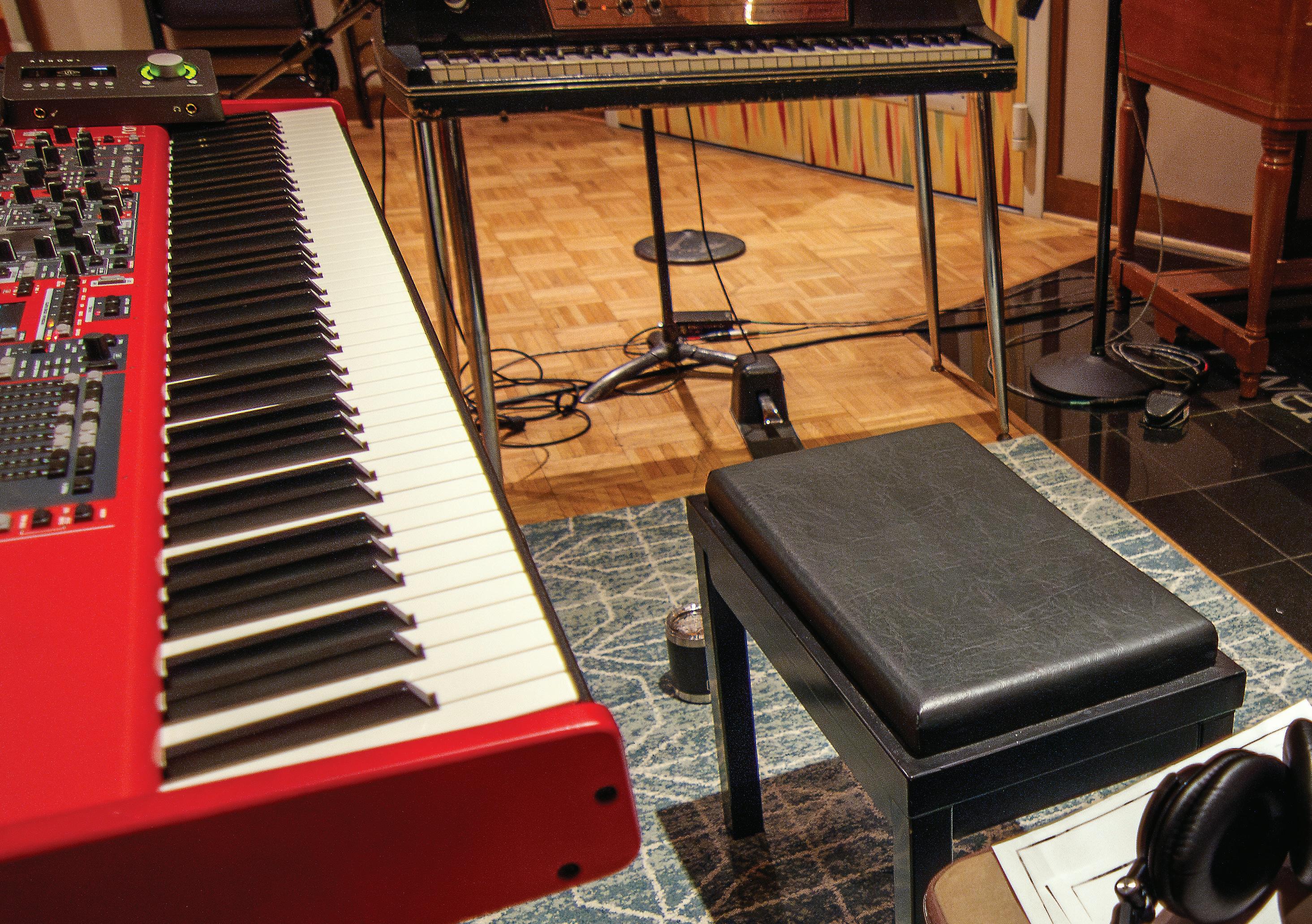
Recording a live band in studio, overdubs, edits, mixing and mastering projects from other students. End of week listening session for critiquing mixes.
WEEK 14
MIXING IN ANALOG/TAPE
Mixing to analog tape, tape editing, tape loops. Pitch correction software. Audio converter calibration, bit depth, plug-ins. Stereo mic techniques.

TRACKING THE BAND IN STUDIO
Recording a live band in studio, overdubs, edits, mixing and mastering projects from other students. Listening session for critiquing mixes. Mix template instruction.
WEEK 18
SIGNAL PROCESSING IN THE STUDIO & INTRODUCTION TO ATMOS
Signal processing in the studio. Theory and use of EQ, Dynamics, Time based and hybrid processors. Compare and contrast plugins with Blackbird’s collection across various workflows, instruments, and vocals. Analog automation training. Near field monitor setup and mixing techniques. Microphone shootouts on various instruments. Introduction to mixing in Atmos. Automation and Compressor/EQ recognition test.
In-depth training and experience in the mixing process: philosophy, theories, tools and techniques. Guest speakers and visits in person or online, critical listening, mixing projects. Comprehensive history of recording technology and the recording industry. Project assignment.

WEEK 20
CAREERS, BUSINESS, ENTREPRENEURSHIP AND INTELLECTUAL PROPERTY
Music business overview, business structures, career planning, entrepreneurship, job search, health and safety. In-depth coverage of aspects of intellectual property law as they apply to the music business. Training in interpersonal skills. Guest speakers and visits in person or online, critical listening, etc. Project assignment.
MUSIC INSTRUMENTS & PRODUCTION, SOUND FOR PICTURE, ETC.
Investigation and practice of various methods of electronic music production: synthesis, etc. History of the electronic musical instrument. Video game, film and TV audio, post-production, etc. Discussions with professionals in the field. Hands-on film scoring project, musique concrete project. Guest speakers and visits in person or online, critical listening, Pro Tools exercises, etc.
Recording a live band in studio, overdubs, edits, mixing and mastering projects from other students. Listening session for critiquing mixes. Mastering training. Final exam.
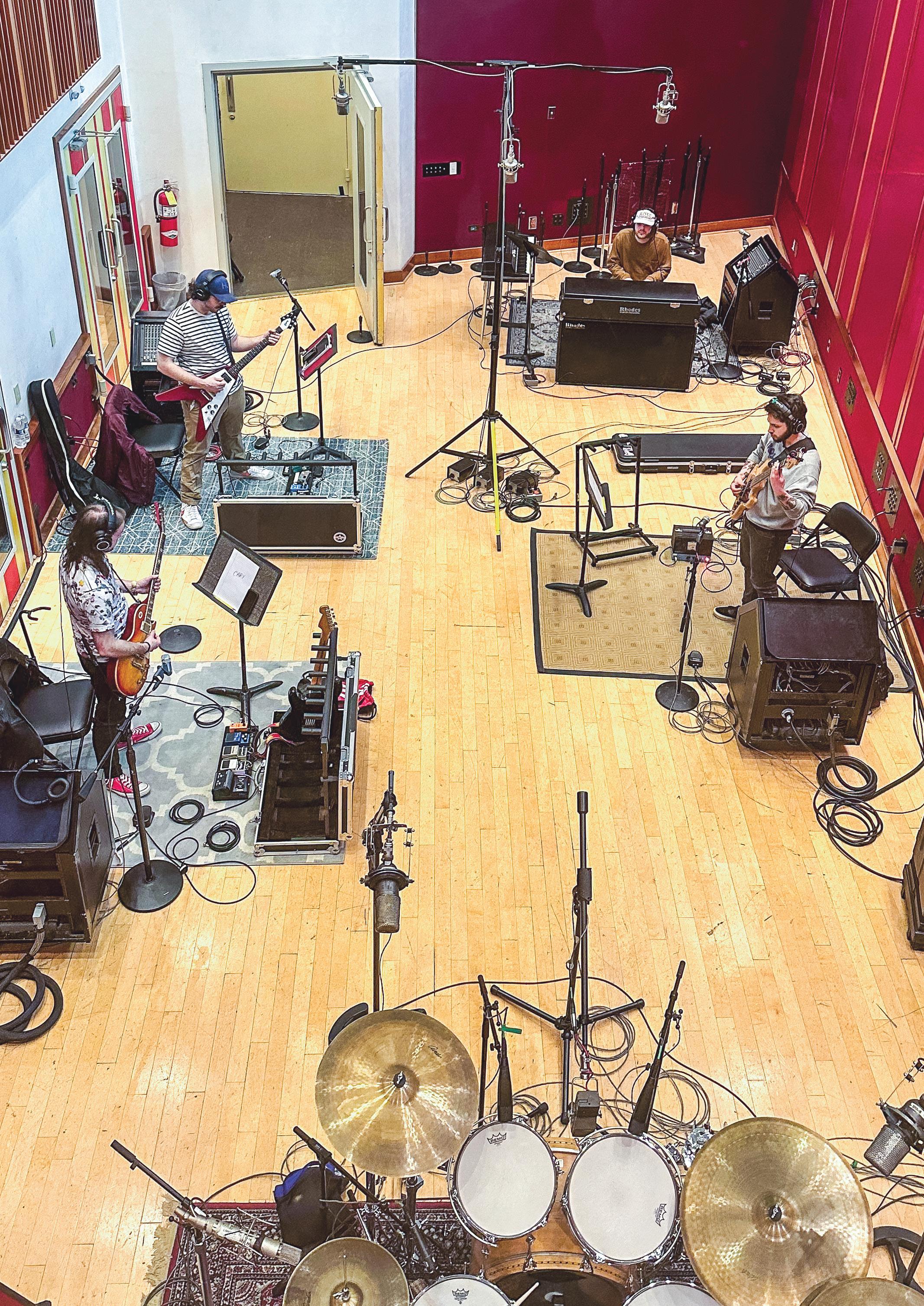
WEEK 23
Speak with multiple guest mentors from different areas of the audio and recording world. Wrap up, critical listening exercises, recording projects.
AND MIXING IN STUDIO
Recording a live band in studio, overdubs, edits, mixing. End of week listening session for critiquing student final project mixes. Mastering student projects.

LOCATION: 3318
PROGRAM LENGTH: 24 WEEKS (HOURS MAY VARY FROM 9AM TO 12AM)
TUITION: $23,100
WEEK 1
INTRO, COURSE OUTLINE, ELECTRICITY & ENTERTAINMENT POWER
Orientation and Overview of Classes, Intro to Instructors, Tour of Live Sound Campus. Electricity and Entertainment Power: Introduction to DC and AC circuits. Overview of concepts associated with electricity: Volts, Amps, Ohms, Watts, Transformers, Reactance & Power Factor, etc. Overview of single-phase and 3-phase power. Introduction to power connectors: Camloks, Pin Sleeve, Twistlock Hubbell, True One & Powercon. Introduction to multimeters and other test equipment. Labs include safe practices for hooking up and metering 3-phase power, connecting power distribution units, and chain motor controllers.
WEEK 2
CABLES, CONNECTORS, AND AUDIO ELECTRONICS
Introduction to common cables and connectors used in pro audio: Microphone Splitters, Mass Connectors, Analog and Digital Snakes. Introduction to balanced and unbalanced audio connections. Introduction to basic audio electronics, including resistors, capacitors, transistors, diodes, and transformers. Transformers as they relate to direct boxes and audio splits. Introduction to soldering. Labs include basic soldering techniques, building, and testing various audio cables.
Introduction to Microphones: Microphone operating principles: Dynamic, Condenser, Ribbon, Carbon. Microphone Polar Patterns: Cardioid, Hypercardioid, Supercardioid, Omni, Bi-Directional, and Shotgun. Common Mic Techniques, On-Axis vs. Off-Axis Coloration, Microphone Frequency Response. Labs to include applying microphone techniques to various sound sources and comparison exercises.
WEEK
Analog Console Signal Flow, Flow Chart Symbols Identification, the Channel Strip, Auxiliary Sends, the Master Section, Signal Routing, and Subgrouping. Incorporating Graphic EQs on Main L/R Outputs, Inserting Dynamics Processing, Incorporating Time-Based Effects. Labs to include applying analog console live signal routing and creating signal flow charts.
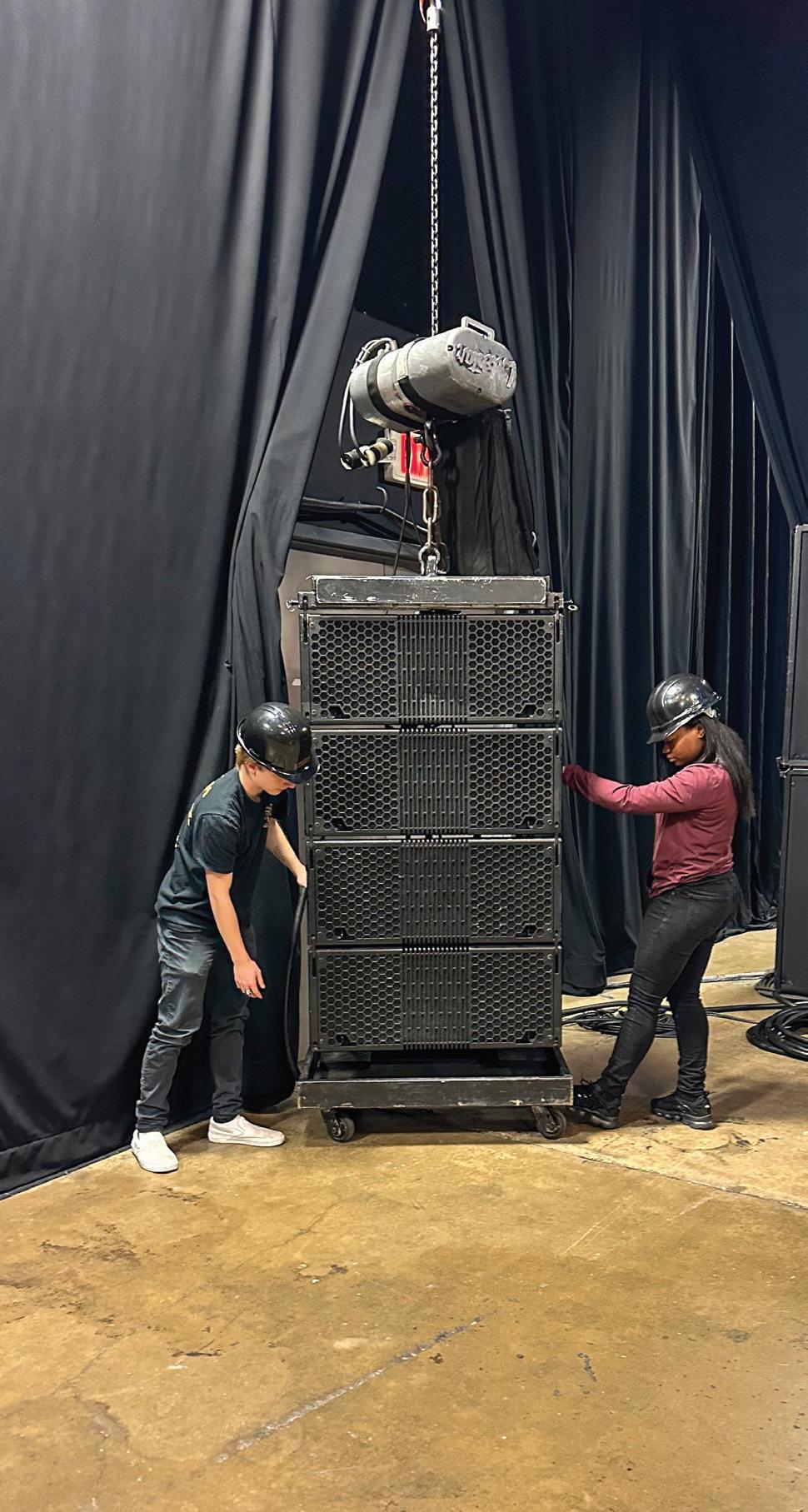
Introduction to common practices in Live Performance. Crew Positions: FOH, Monitors, System Tech, Production, Stage, and Tour Managers. Stage Terminology: Stage Directions, Stage Plots, Input Lists, Line Check vs. Sound Check. Introduction to Analog Consoles, Signal Flow, the Channel Strip, Auxiliary Sends. Labs to include setting up a monitor console and wedges, incorporating Graphic EQs to the Aux outs, basic monitoring, and using a Cue Wedge.
WEEK 6
SOUND THEORY & ACOUSTICS
Introduction to sound theory and key concepts associated with acoustics: Frequency, Wavelength, Speed of Sound, Equal Loudness Contours, SPL meters, Dynamic Range, and Noise Floor. Venue acoustics and modeling of acoustic environments: RT60, Room Modal Analysis, Inverse Square Law, Decibels, White Noise, and Pink Noise. Introduction to Critical Listening. Overview of common practices for sound control in room design.

WEEK 7
AUDIO SIGNAL PROCESSORS
Building on previous lessons, including the signal flow of frequency-based, amplitude-based, and time-based processing. Identification of Filters, Shelving, Sweeping, and Parametric Equalizers. Inserting, side-chaining, and use of parallel dynamics-based processors. Introduction to Multitrack Mixing and common mixing techniques. Labs to include hands-on application of frequency-based, amplitude-based, and time-based processors.
Continued on page 24
Introduction to Digital Audio and recording of a live performance. Introduction to basic networking, Dante, Dante Virtual Soundcard, and Dante Controller. Introduction to Pro Tools: System setup, recording, editing, mixing, applying effects, and signal flow. Labs include hands-on setup, operation, and mixing of a project in Pro Tools.
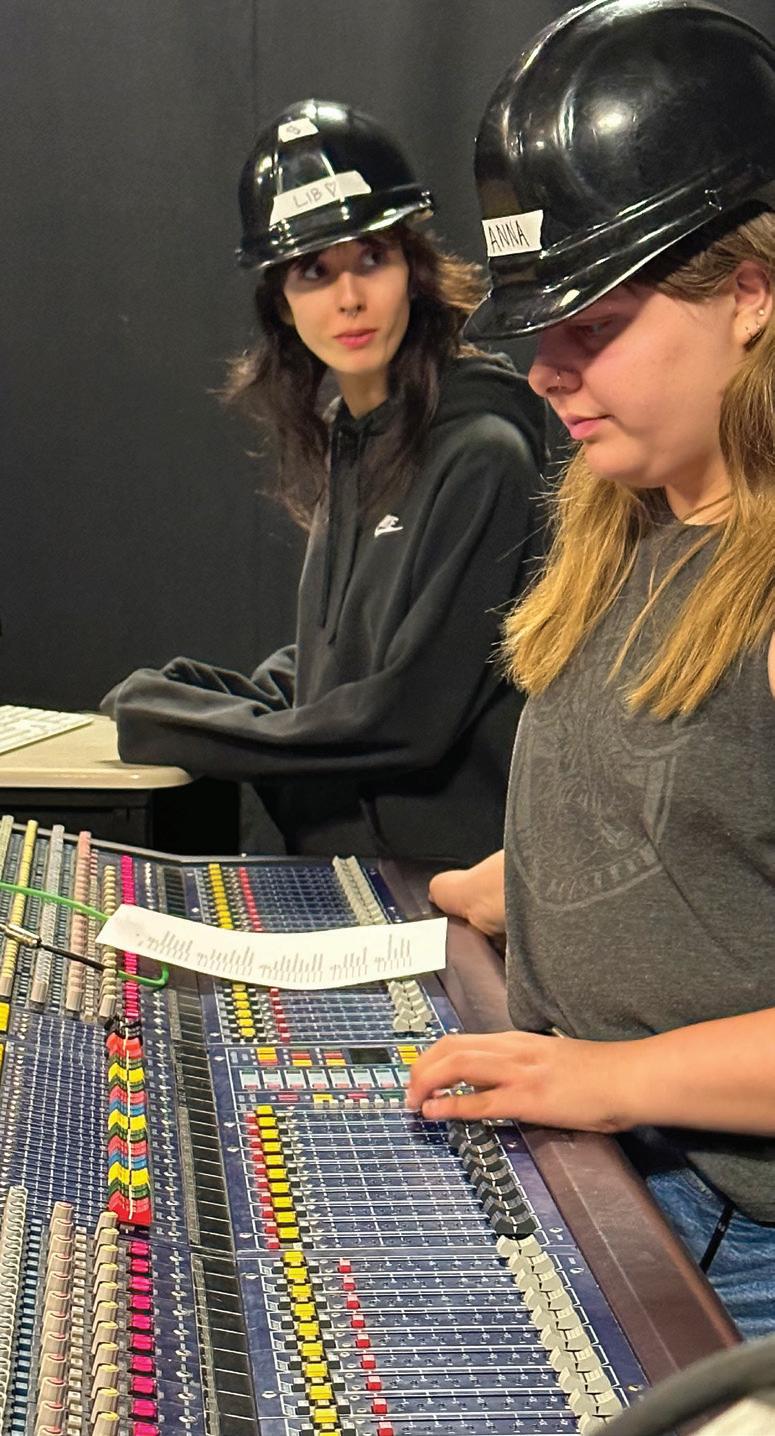
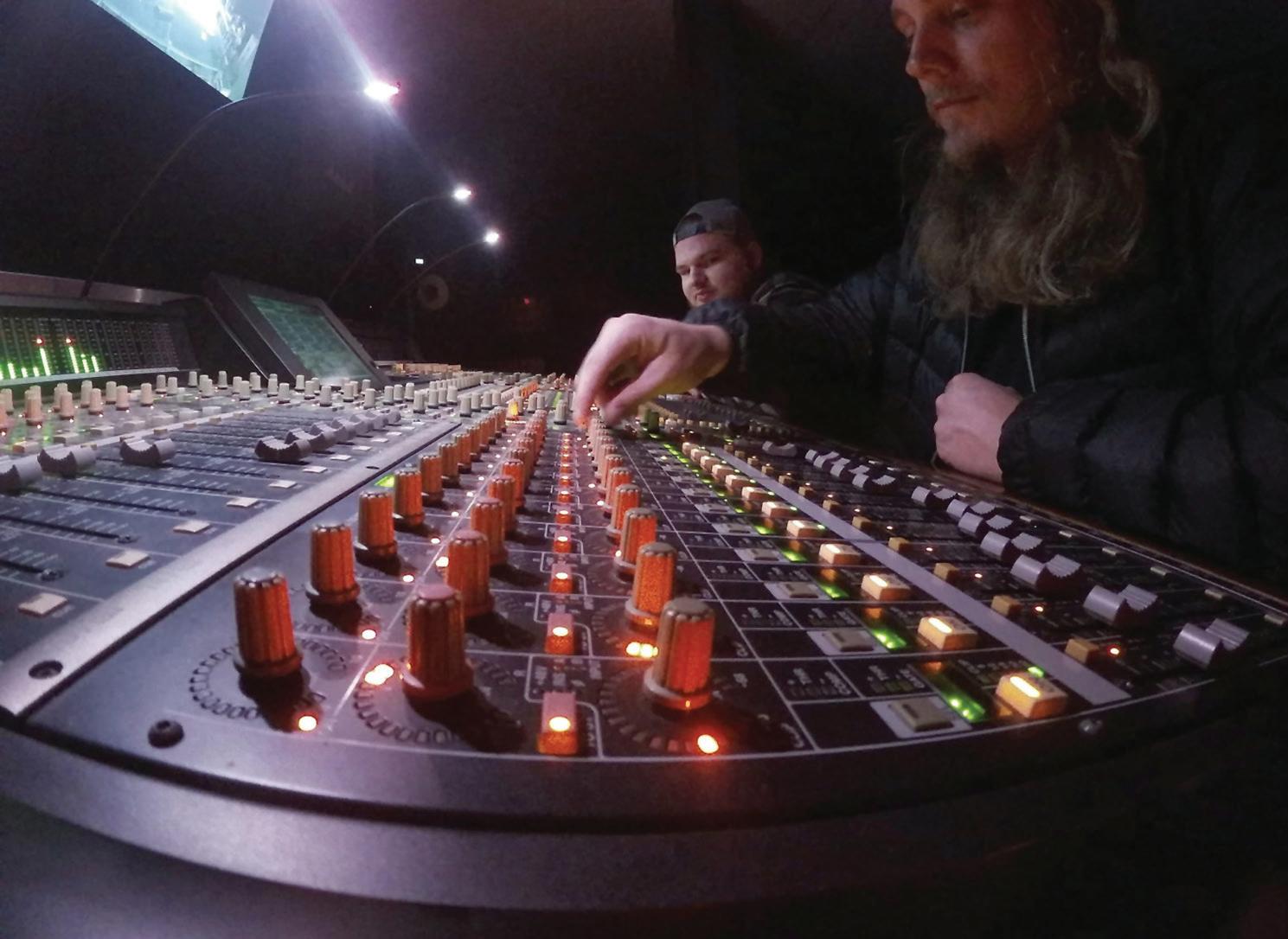
The live sound students visit the studio for 3 days to learn recording, overdubs, edits, mixing, and mastering of a live band in a studio setting. End-of-week listening session for critiquing mixes. The studio engineering students visit the live facility to learn live audio basics: setup, power, FOH, and monitor mixing.
Introduction to digital consoles: patching and I/O, digital connectivity, latency, on-board signal processing, saving, copying & pasting presets, snapshots, and scenes, and offline editors. Consoles focused on this week include the Midas M32, Soundcraft Si Performer, Soundcraft Vi1, as well as others depending on availability. Labs include hands-on exercises based on signal flow and mix techniques.
Introduction to loudspeakers, crossovers, and amplifiers. Topics include moving coil drivers, compression drivers and horns, enclosure types, construction & design, dispersion patterns, active and passive crossovers. Amplifier terminology: power rating, class, impedance, modes of operation (stereo, parallel, bridged mono). Discussion of common practices regarding connectivity of modern sound systems.
WEEK 12
Comprehensive review of material covered in the previous 11 weeks in preparation for the midterm exam. Practice for the midterm practical exam.
Review of loudspeakers, design & construction, horn types, multiple point sources, comb filtering, setting up a 2-way system, crossover points, filter topology (Butterworth, Bessel, Linkwitz-Riley), setting up a 3-way or 4-way system, aux-fed sub systems, sub arrays, system processors. Labs include connecting and setting up a PA system, configuring system processors, and sub arrays.
Fixed audio system designs for use in venues (theaters, schools, bars, churches, etc.). Audio processing for venues, power sequencing, common design practices (gear, rigging, remote access), 70V speaker systems (theory, connectivity, deployment using software such as Ease Address), designing a sound system with a budget and deadline.
WEEK 15
Introduction to system analyzers and troubleshooting methods, time alignment, and system tuning methods.
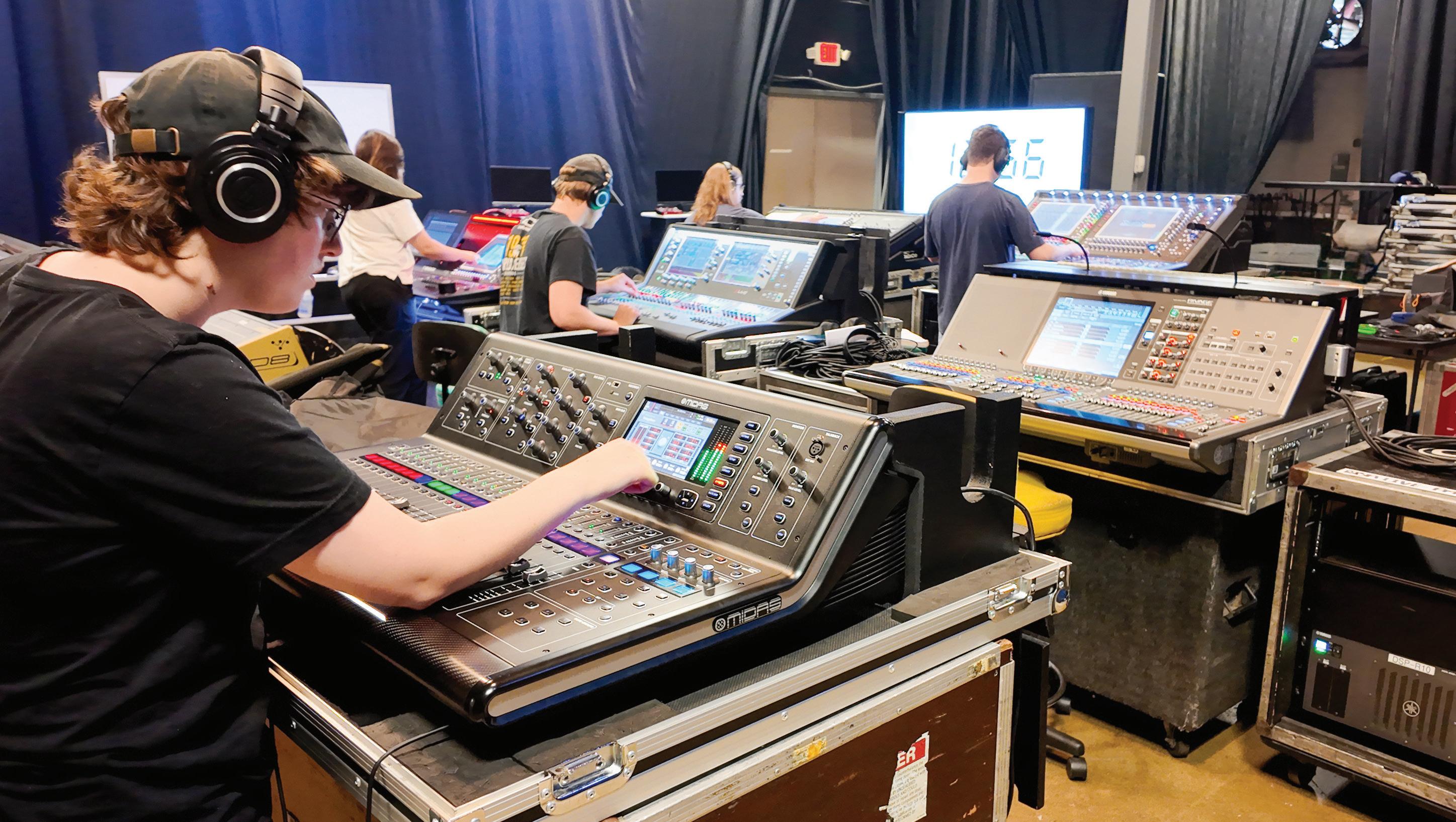
WEEK 16
Line array history and theory, popular configurations, line array principles (array length, driver separation, inverse square law), array configurations (straight line, constant splay, progressive splay). Rigging gear (aircraft cable, shackles, spansets, pear rings), rigging points (dead hangs, bridle hangs). Labs include rigging overview, flying, and configuring a line array system.
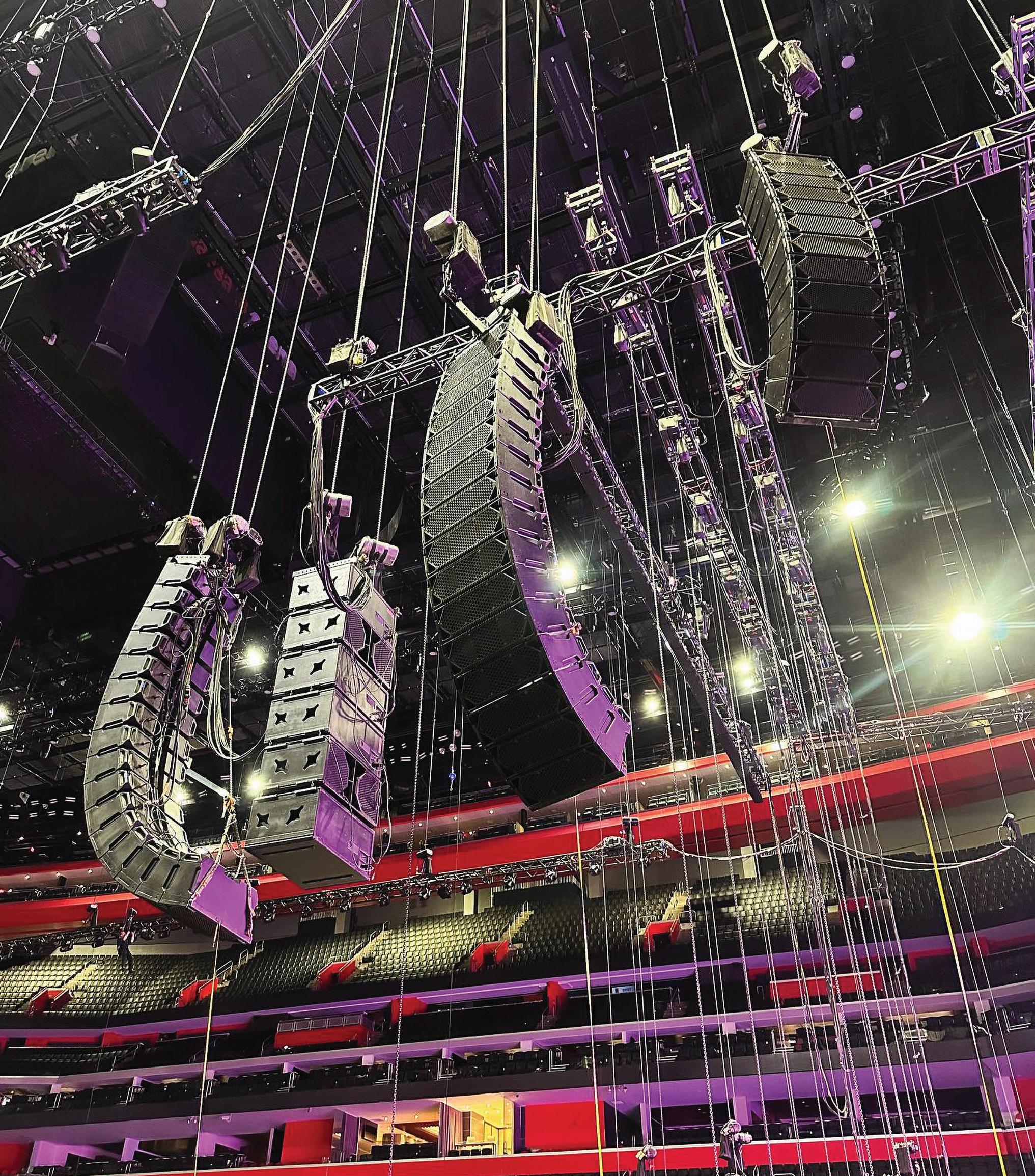
WEEK 17
ANALOG CONSOLES II
Large format analog consoles, advanced analog signal flow concepts, VCAs & matrices, mute groups, outboard signal processing (including frequency, amplitude & time-based processing), documenting outboard gear, mixing tips & tricks, recording a live mix using Pro Tools.
WEEK 18
RF & IEMS
RF theory, FCC rules & regulations, types of modulation, RF frequency bands, RF signal flow, wireless transmitters, non-diversity, diversity & true diversity receivers, networking wireless devices. Wireless antennas: antenna polar patterns, cabling and connections, antenna splitters and combiners, antenna deployment. Labs include connecting wireless devices and controlling and monitoring remotely over a network connection
WEEK 19
ADVANCED MONITOR SETUPS
Stage monitor mix approaches, wiring and deployment of stage monitoring, monitor signal flow, wedge configurations (mono, stereo), optimizing wedges for gain before feedback, IEM mixing, side fills, side hangs, communication etiquette with artists, troubleshooting. Labs include wiring and deploying several monitor configurations and creating a monitor mix.
WEEK 20
DIGITAL AUDIO THEORY & NETWORKING
Digital audio theory, analog to digital converters, digital to analog converters, sample rate, bit depth, word clocking, digital audio protocols, linear time code. Computer networking (IP addresses, subnet masks, gateways, MAC address-
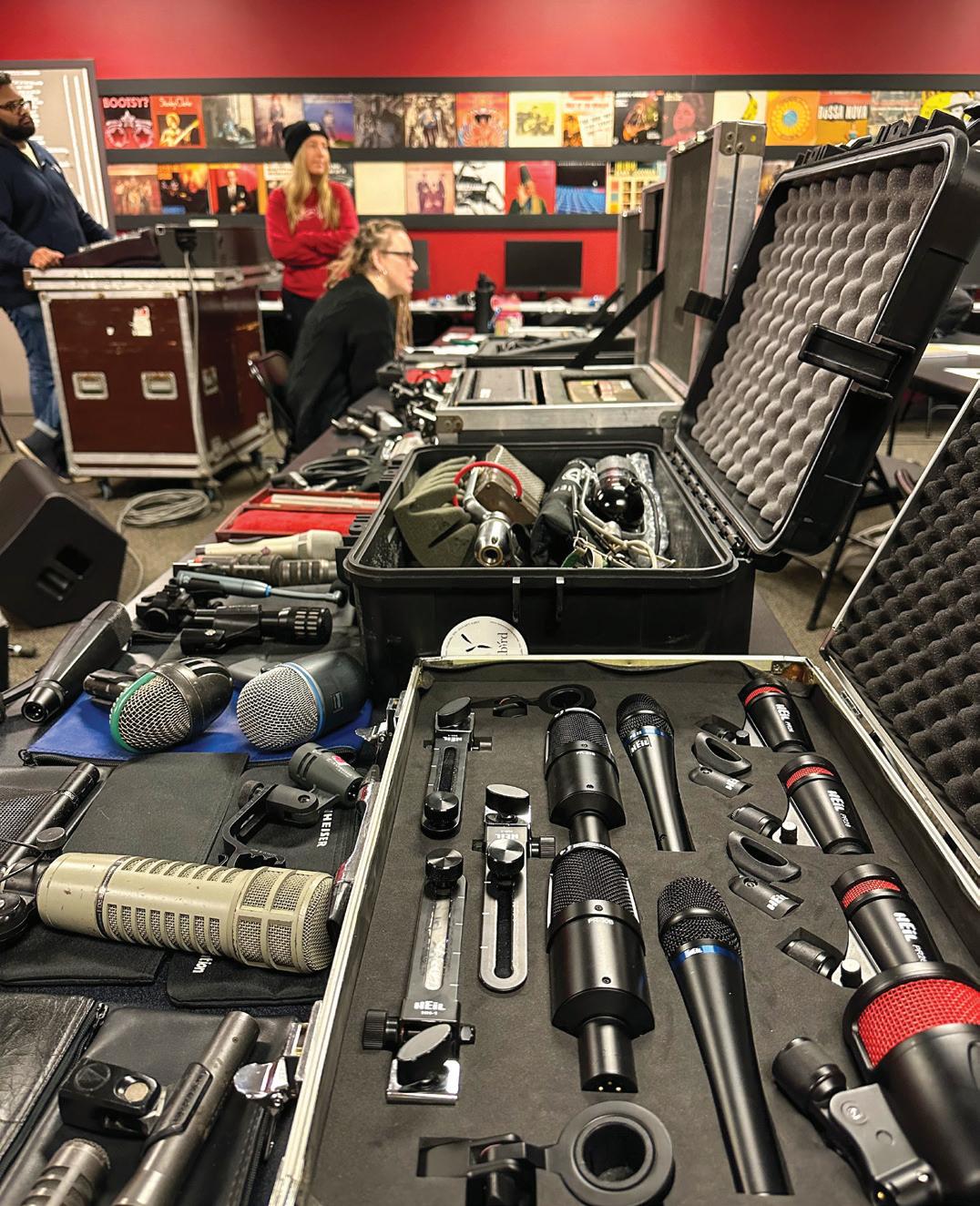
es, network switches), audio over Ethernet (Dante, AVB, AES50), MADI, AES/EBU. Labs include connecting and networking various audio gear.
WEEK 21
TOUR PRODUCTION AND MUSIC BUSINESS
Production, stage, and tour management, band & artist management, riders (tech, backline, hospitality), union hands, venue management, taxes, being your own boss, sole proprietorships, DBAs & LLCs, resumes, business cards, touring etiquette, bus & tour safety.
WEEK 22
BACKLINE AND STAGE MANAGEMENT
Instrument setup & maintenance, anatomy of a guitar (body & neck, bridge, saddle & nut, tuners, etc.), stringing instruments, truss rod adjustments, tuning, intonation & action, effects pedals signal flow, effects loops, amplifier demos & mic techniques, setting up a drum kit, changing drumheads, drum hardware.
WEEK 23
DIGITAL CONSOLES II AND MIXING TECHNIQUES II
Advanced digital signal flow concepts, large format digital consoles, advanced signal routing (matrix mixers, auxiliary sends, subgrouping, DCAs, control groups, snapshot automation), offline editors.
WEEK 24
RECAP AND FINAL EXAMS

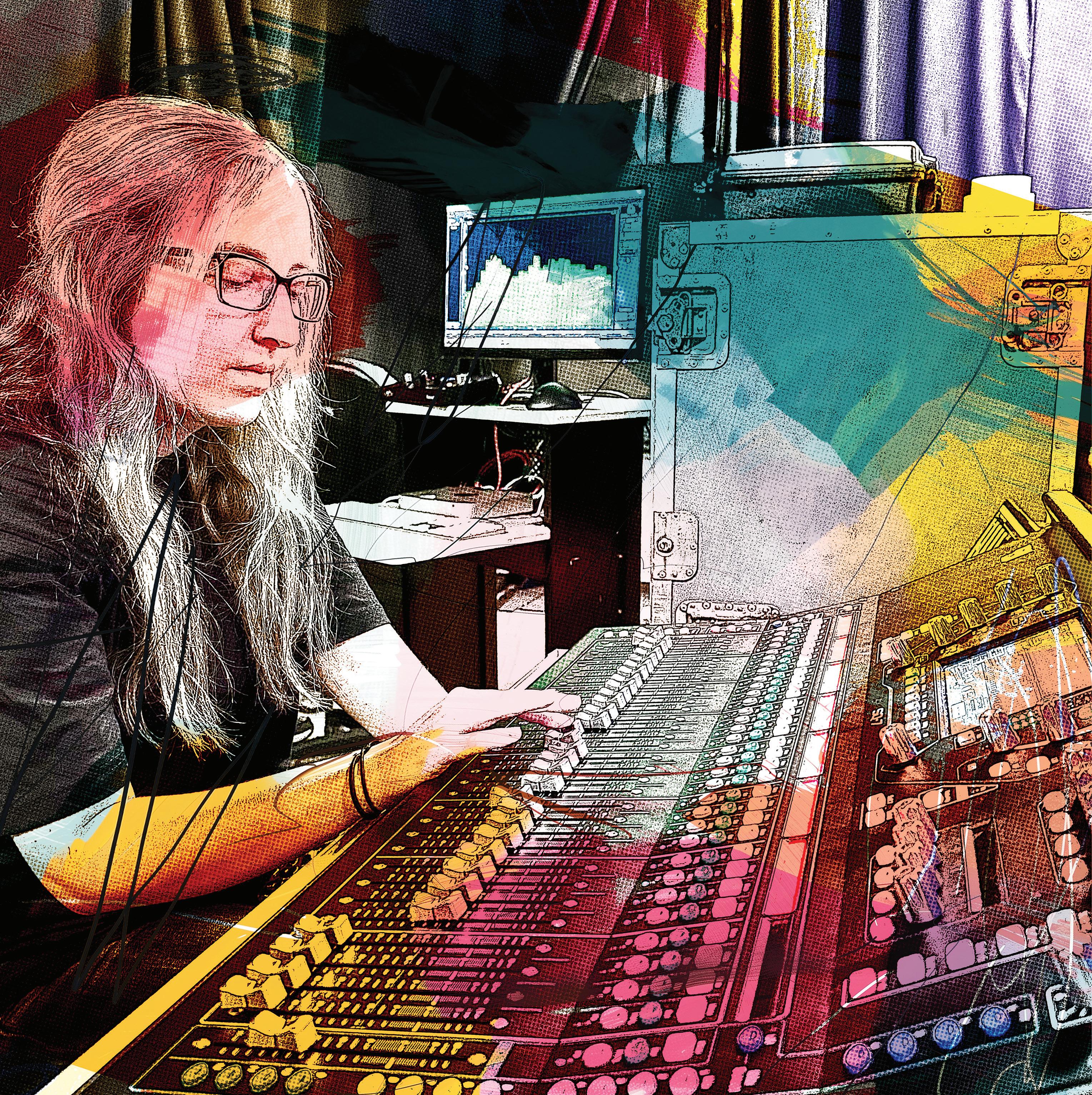
The Blackbird Academy is located in Berry Hill, TN, home to more than 40 recording studios and just minutes from downtown Nashville. Known worldwide as Music City—the capital of country music—Nashville has always been so much more! It’s an entertainment center and a music production hub for Rock, Gospel, Christian, Americana, Pop, Rap, R&B‚ and all styles of music.
The Blackbird Academy is part of Blackbird Studio, one of the most outstanding recording destinations in the world.
The rooms, consoles, microphones, outboard gear and lounges were chosen around a central concept: to provide the best audio production facilities for top musicians, producers and engineers. This passion for great audio quickly made Blackbird the studio of choice for artists including Post Malone, Kenny Chesney, Morgan Wallen, Tim McGraw, Smashing Pumpkins, Kings of Leon, boygenius, The White Stripes, Keith Urban, just to name a few.
To apply to The Blackbird Academy, you’ll need at least a high school diploma or GED. Make sure to submit your official transcripts or GED as part of your application. If you attended a non-accredited school, please check with your admissions representative before moving forward.
You’ll also need to provide two letters of recommendation (from an employer, instructor, or audio pro) and to write two 500-word essays. Once we have your application, we’ll set up an interview, either in person or over the phone. We might request additional information before making a final decision on your admission.
Our programs kick off four times a year, each running for six months.
2025
January 6, 2025
April 7, 2025
July 7, 2025
September 29, 2025
2026
January 5, 2026
April 6, 2026
July 6, 2026
September 28, 2026
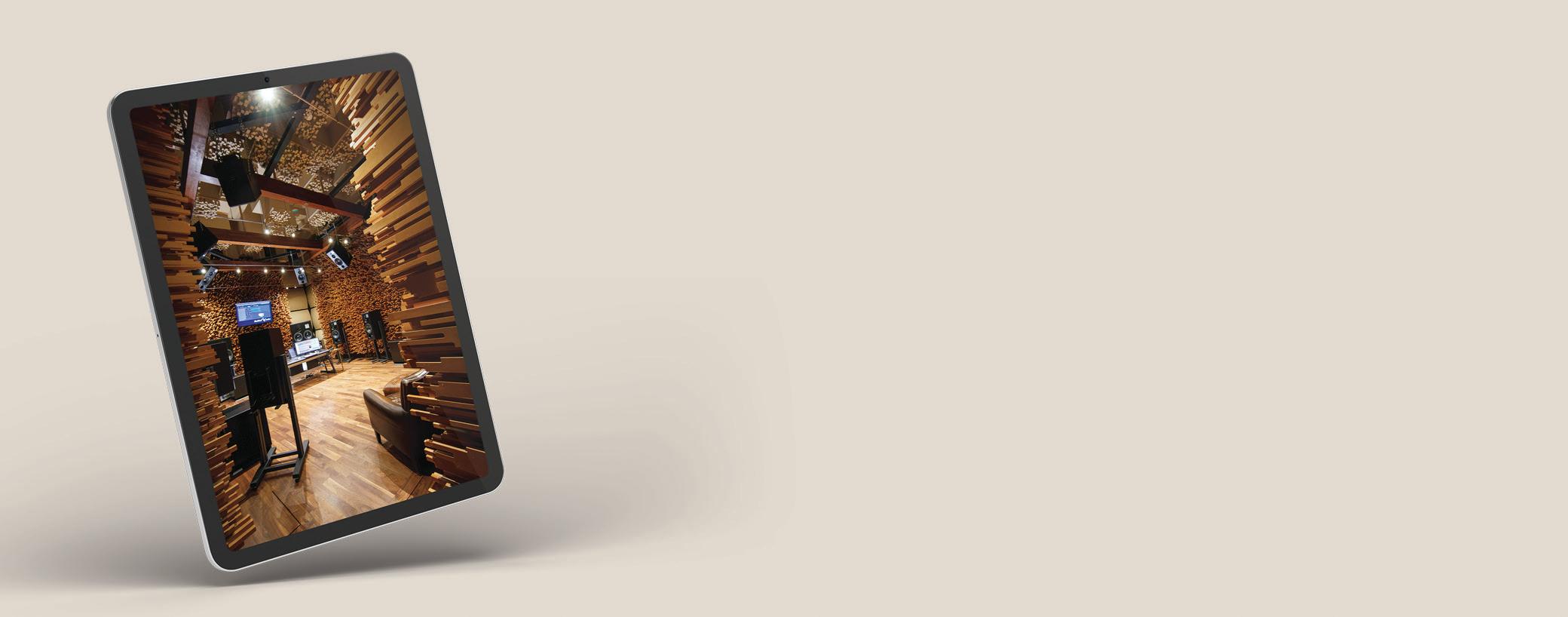
Your tuition covers everything, including an iPad loaded with all the educational materials. Here’s the breakdown:
Studio Engineering Program
$23,100
Live Sound Engineering Program $23,100
The Blackbird Academy has arranged different lease options with several local apartment complexes for incoming students. Admissions Representatives can also assist students with a roommate list if you would like a roommate to help lower expenses. The resource links below can also help guide you through the many housing choices in the Nashville area.
HOUSING RESOURCES:
• Apartments.com: www.apartments.com/nashville-tn/
• Apartment Finder: www.apartmentfinder.com/Tennessee/Nashville-Apartments
• ApartmentGuide: www.apartmentguide.com/apartments/Tennessee/
• ForRent.com: www.forrent.com/find/TN/metro-Nashville/Nashville
Here are your breaks for the next two years:
Spring Break: March 29–April 6, 2025
Summer Break June 28–July 6, 2025
Thanksgiving November 27–30, 2025
Winter Break December 20, 2025–January 4, 2026
Spring Break March 28–April 5, 2026
Summer Break June 27–July 5, 2026
Thanksgiving November 26–29, 2026
Winter Break December 19, 2026–January 3, 2027
At The Blackbird Academy, networking starts from day one. You’ll connect with students, instructors, and guest speakers, building your industry contacts throughout your time here.
While you can work part-time during the program, your focus after graduation should be on landing a job in the audio industry. Our Career Services Manager is here to help, connecting you with opportunities in studios, live sound companies, manufacturers, and more. To qualify for placement assistance, make sure you meet graduation requirements and settle any financial obligations.
Contact our Admissions Department to discuss payment options. You can pay in cash or set up a payment plan, and these options can be combined with other financial aid. VA benefits are also accepted.
If you’re rejected by The Blackbird Academy or cancel within three business days of paying your application fee, you’ll get a 100% refund. If you visit the Academy after applying and decide to cancel within three business days of your visit, you’ll also get a full refund. Otherwise, the $75 application fee is nonrefundable.
If you need to withdraw, any refunds will be handled based on the last date you attended a class. Refunds will be processed within 30 days. In case of emergencies like an extended illness or family tragedy, we’ll work with you to find a fair solution.
KEITH URBAN
RECORDING ARTIST, SONGWRITER, MUSICIAN
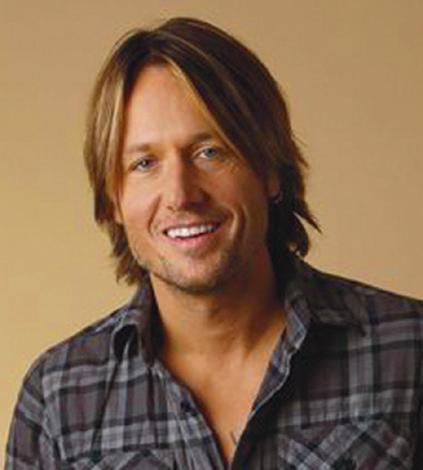
“
If you are thinking about going anywhere for an audio school, this is the place… it’s the epicenter of recording in Nashville and people from outside country music are all coming here to record as well.
”
MARC ROBERGE
RECORDING ARTIST, MUSICIAN, O.A.R.
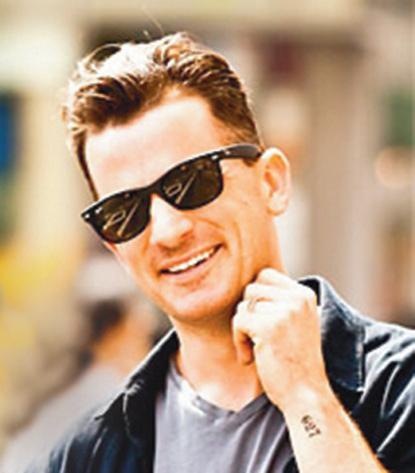
“ Coming to the Blackbird Academy would be the best decision you ever made, if you want to be in the real music business. ”
VANCE POWELL
GRAMMY-WINNING RECORDING ENGINEER

TIM McGRAW
RECORDING ARTIST, SONGWRITER, ACTOR

SHERYL CROW
RECORDING ARTIST, SONGWRITER, MUSICIAN “
If you are going to get an education in this business, this is the best set of rooms to be doing it. ”
PATRICK CARNEY DRUMMER, THE BLACK KEYS

“
If you are interested in learning how to record or mix live sound…from some of the best people in the game, I would recommend going to The Blackbird Academy.
”
If you are looking for a place to learn all you can about audio, then The Blackbird Academy is the place you need to be. ”
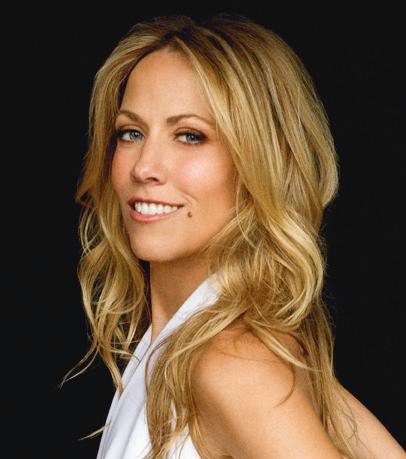
“ [Students] are going to walk in here, be excited about learning, and really learn what it takes to make a record… If I had six months to dedicate to coming to The Blackbird Academy, I would so be here.
”
DON WAS GRAMMY-WINNING PRODUCER, MUSICIAN
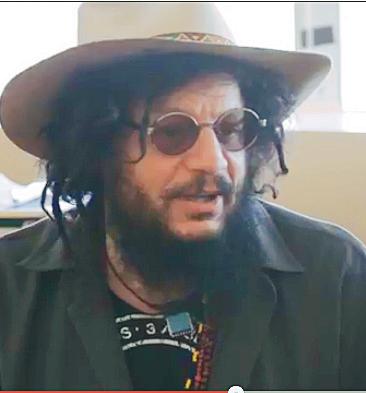
“
To be able to learn in that environment… man, you are gonna have the best shot of an education in recording that you’re gonna have anywhere. ”
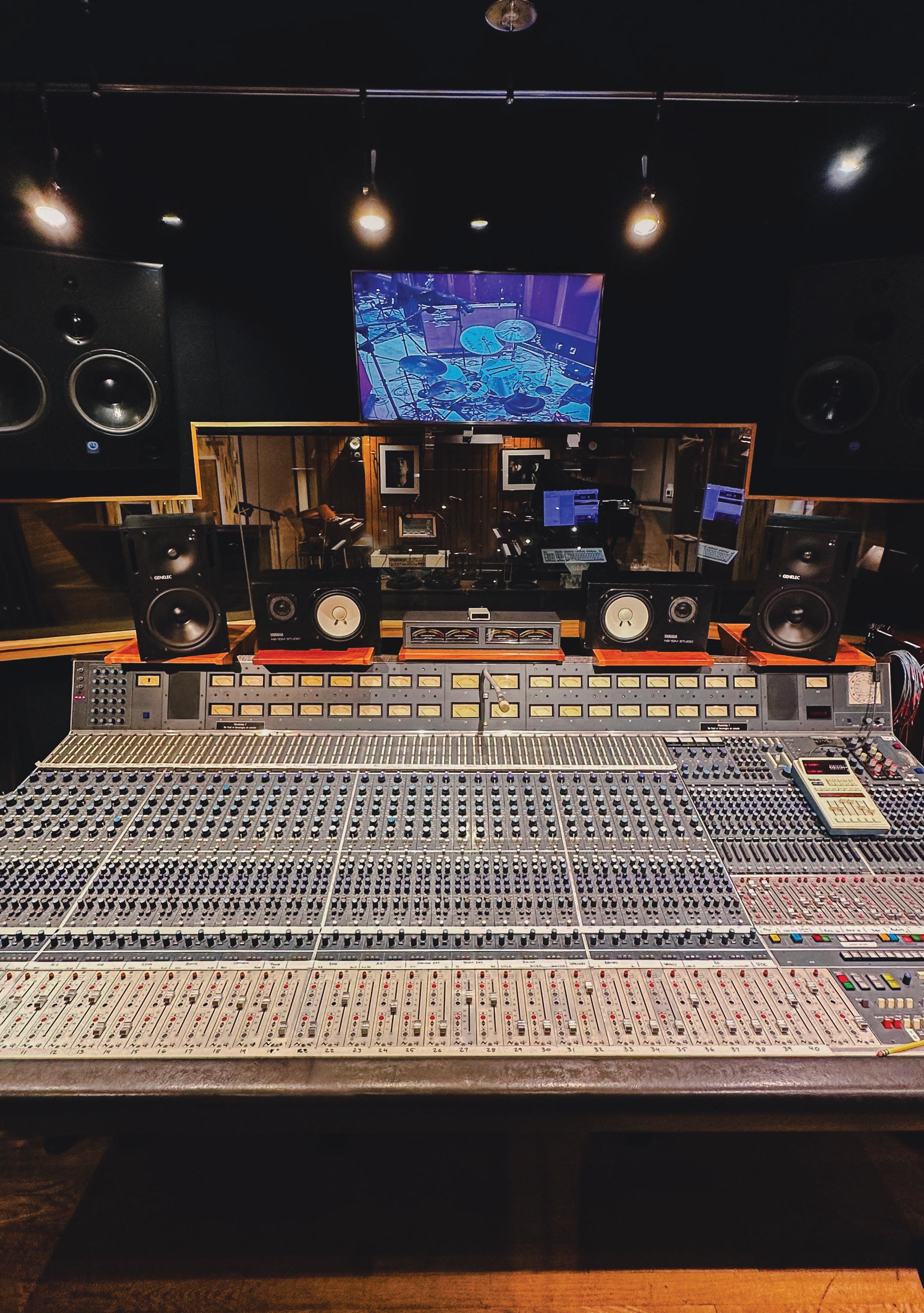
MATT WOLACH
MIXING ENGINEER

“
This is HANDS DOWN, the best audio school in the world!!! If you are looking for a career in the music industry, The Blackbird Academy is a must.
DAVID LOY
FOH ENGINEER, KANE BROWN

“
Thanks to the education and connections I had received in this program, I began touring even prior to graduating. ”
CALEB CARTER

RACHEL ROZZI
FOH ENGINEER, BAILEY ZIMMERMAN “
“
The hands-on experience we get is really second to none. I graduated with a large enough toolkit, that I still tap into [it] to this day. ”
JAVONNII CURRY
CINEMA QA AUDIO ENGINEER, DOLBY LABORATORIES

“
I specifically chose The Blackbird Academy because I knew that it was going to provide the best quality education in terms of audio, and it paid off. It WAS such an amazing experience.
”
AUDIO TECH, CLAIR GLOBAL
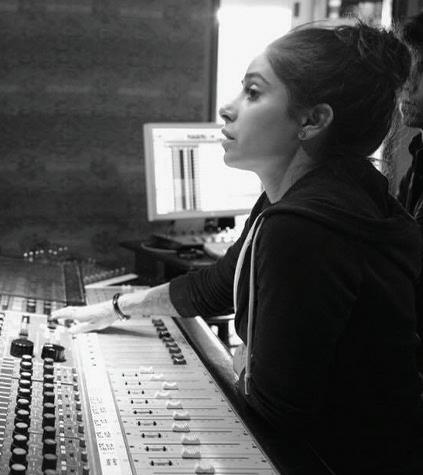
Blackbird was very instrumental in helping me start my career in Live Audio.
REAGAN KIMSEY
MUSICIAN / DRUMMER JAKE MATTHEW
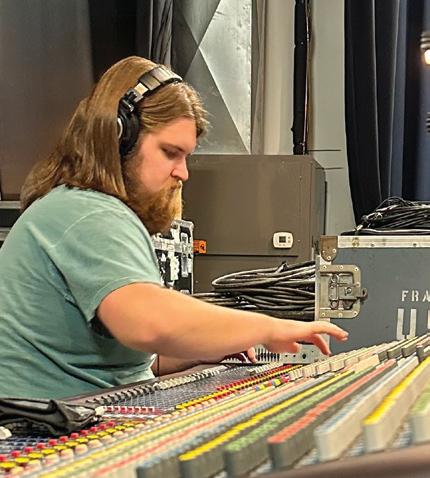
“
I can’t speak highly enough of my time at The Blackbird Academy. A year ago I hadn’t even sat behind a mixing console. We learned almost everything hands-on as well as with real bands live and in the studio. In my opinion Blackbird is truly the Harvard of audio schools. Also all of the friends I made during this time were truly awesome. ”
BRIT YEOMANS
STAGE TECH, CLAIR GLOBAL
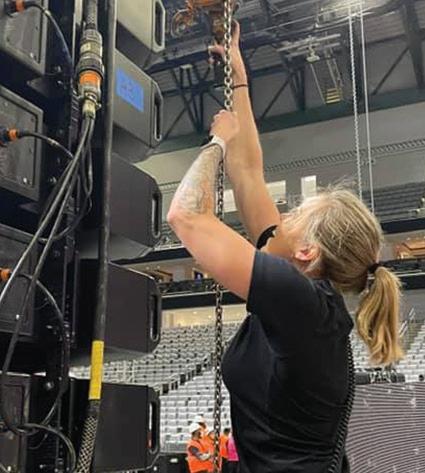
“ The Blackbird Academy really kickstarted my audio career in the best way. The school’s hands-on approach quickly got me from ‘what does phase mean’ to an employee for the world’s greatest sound company upon graduation! ”
